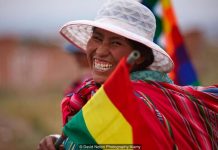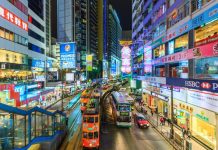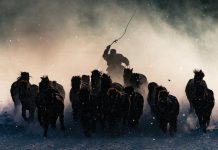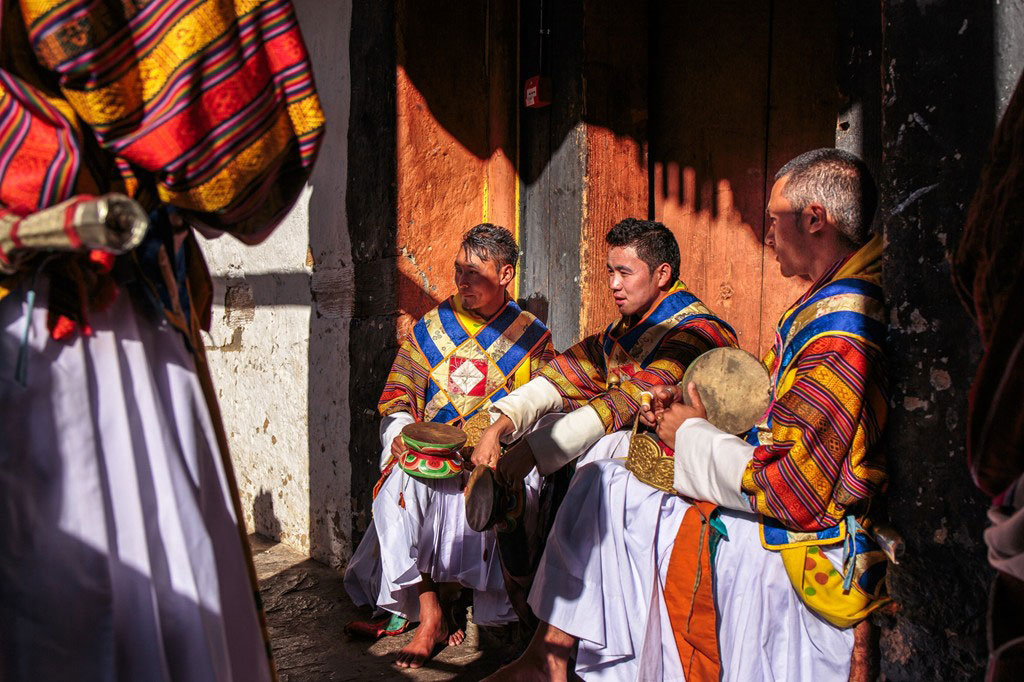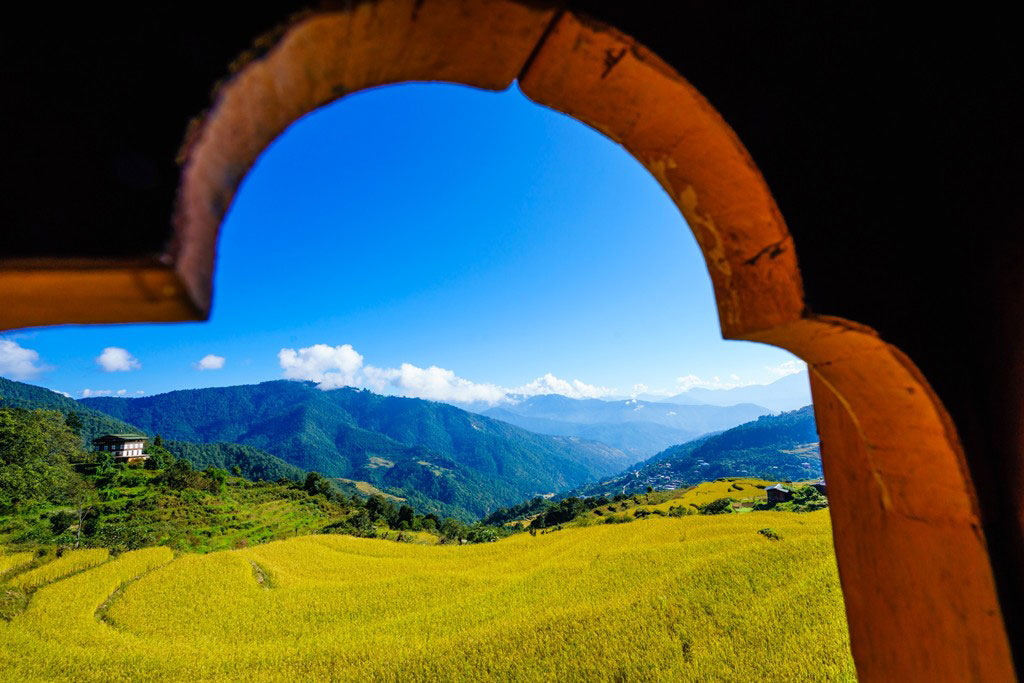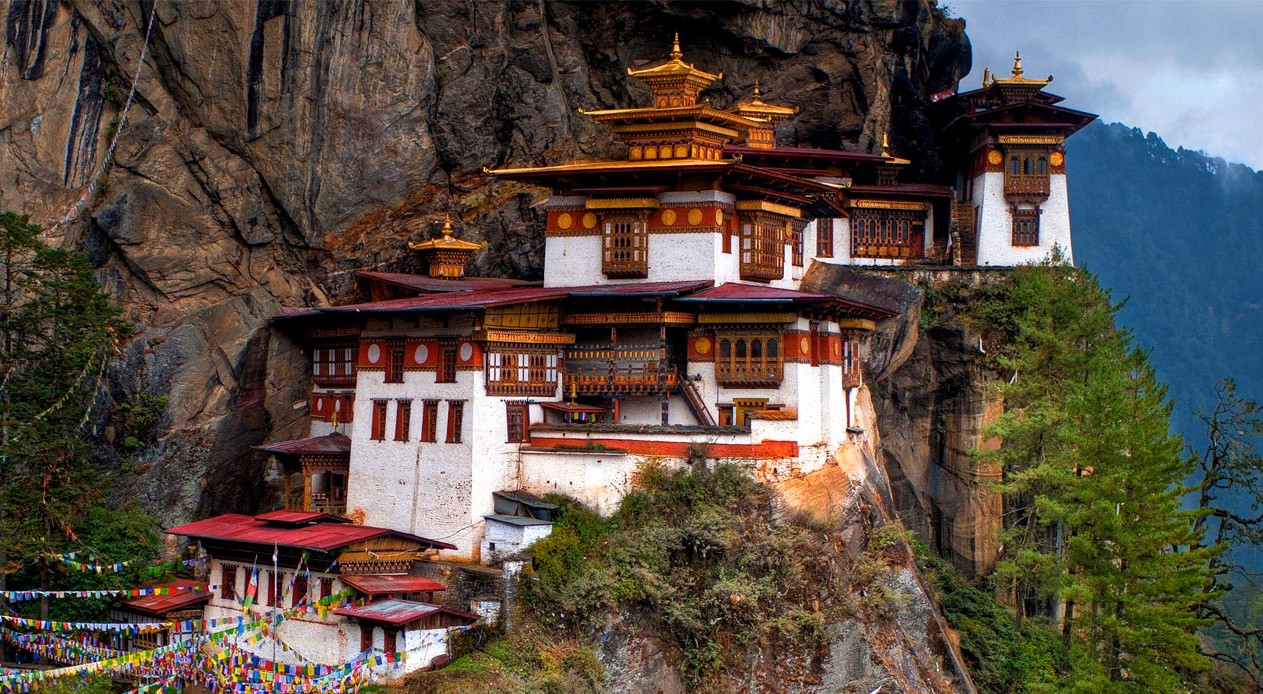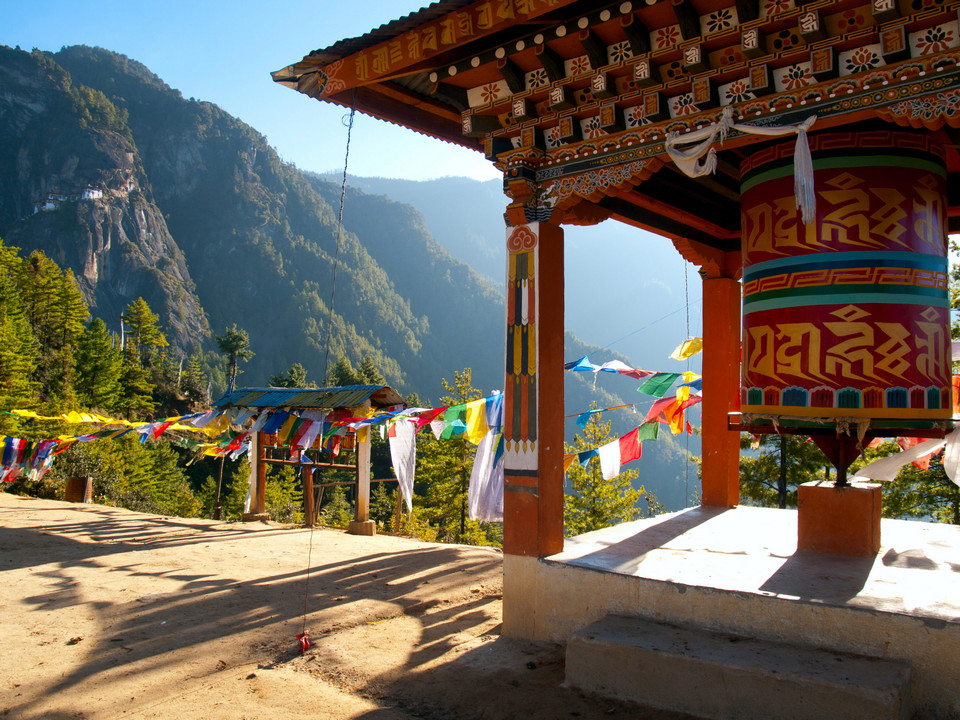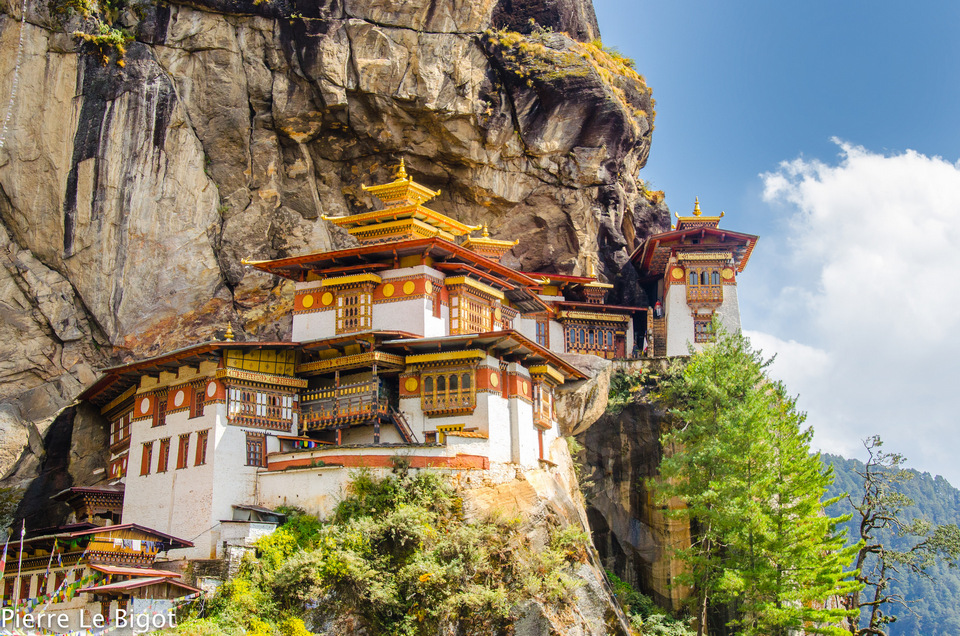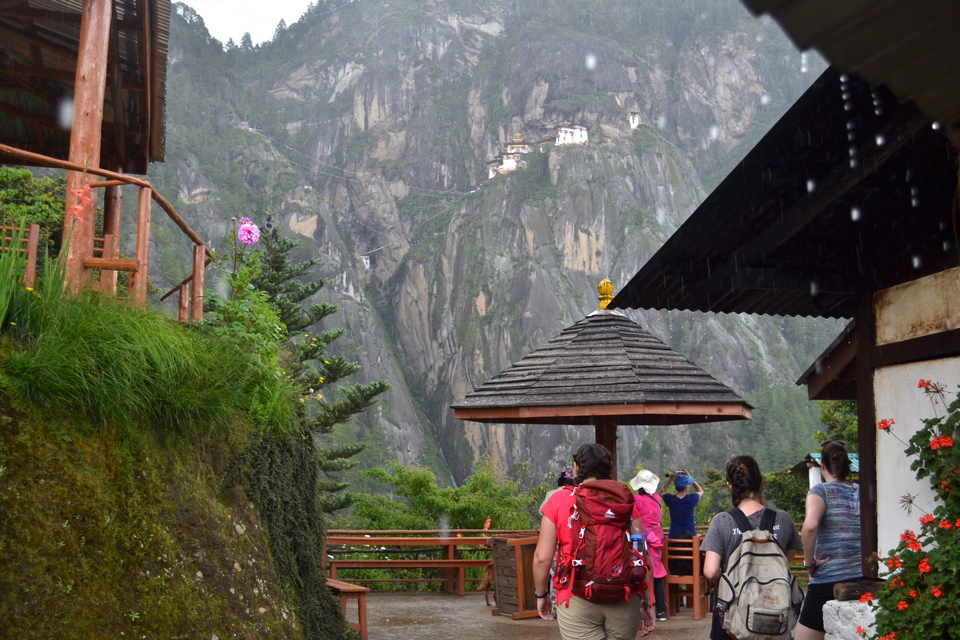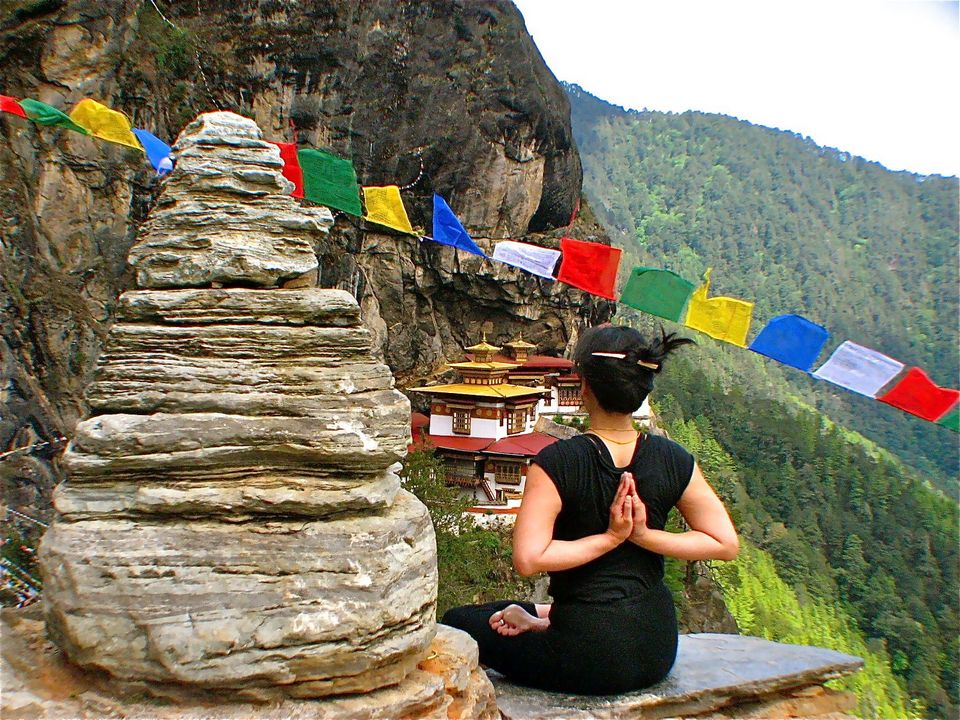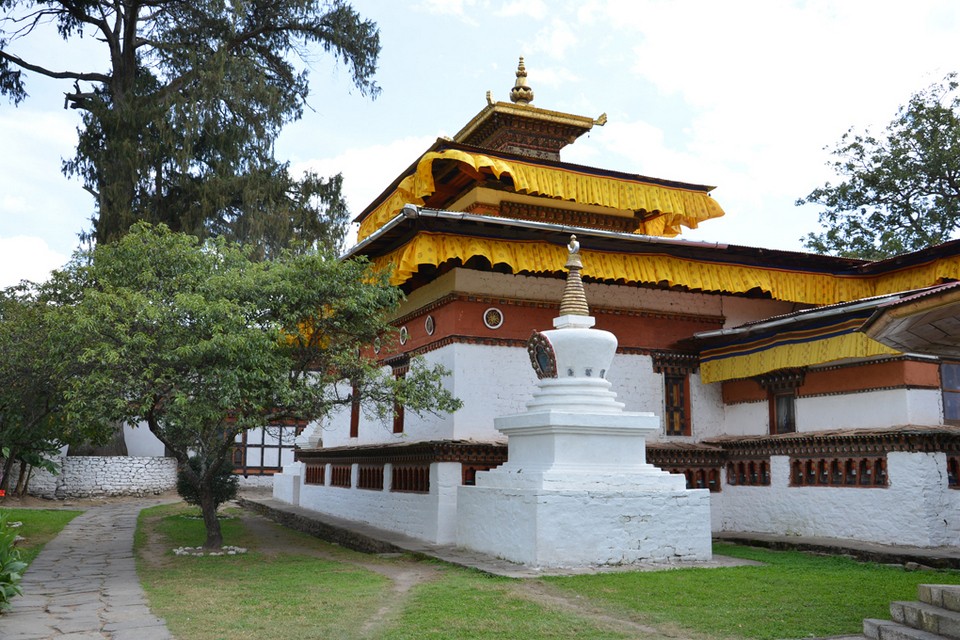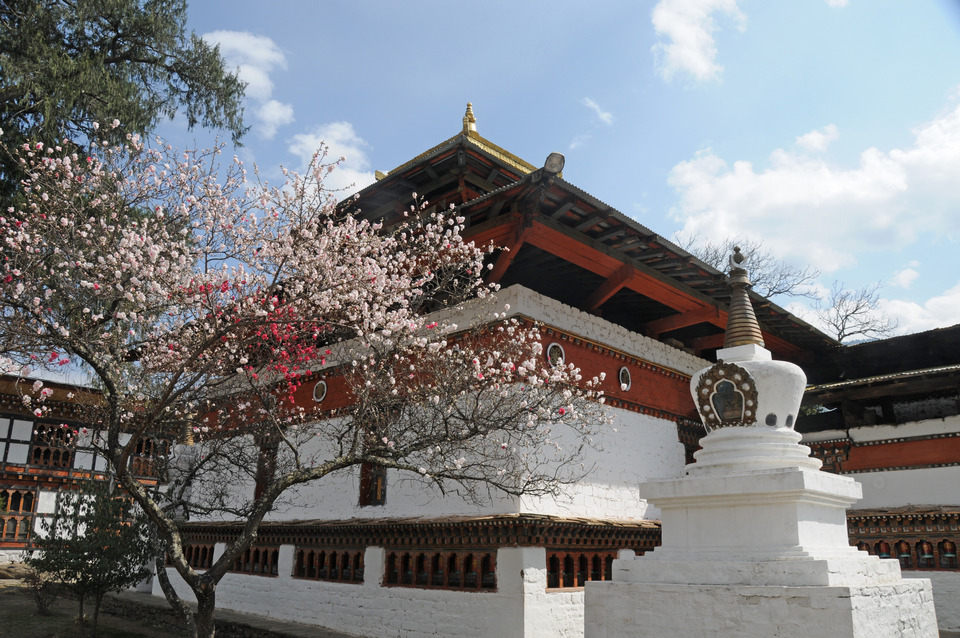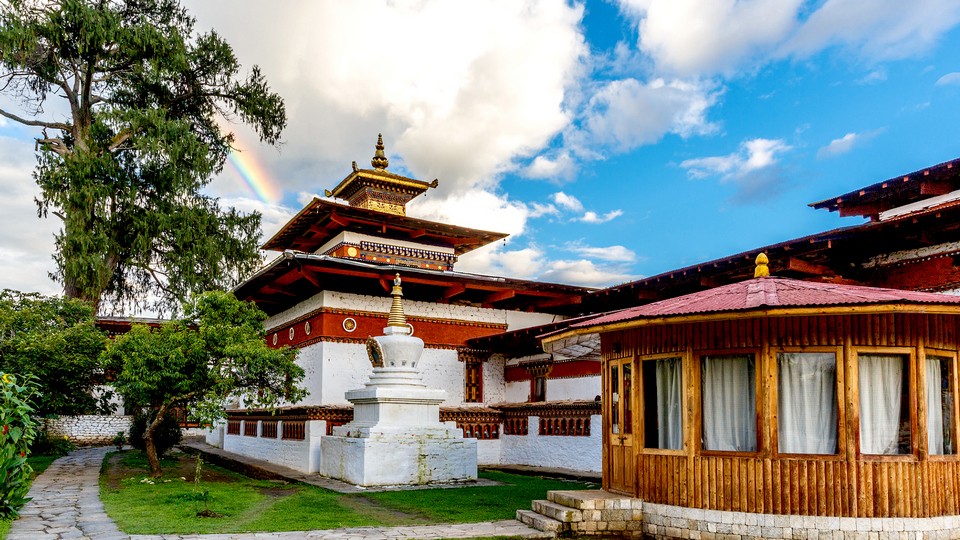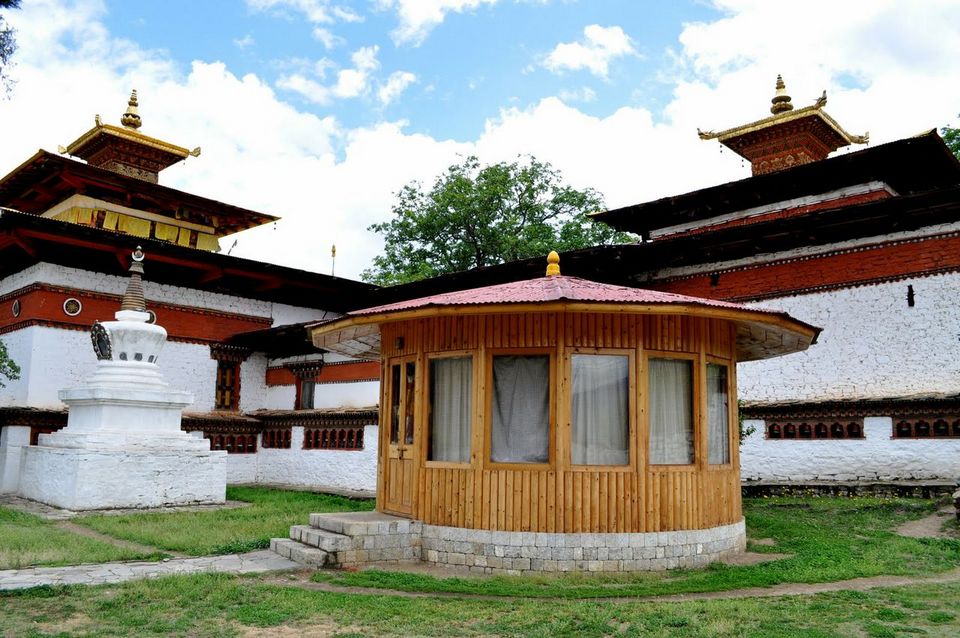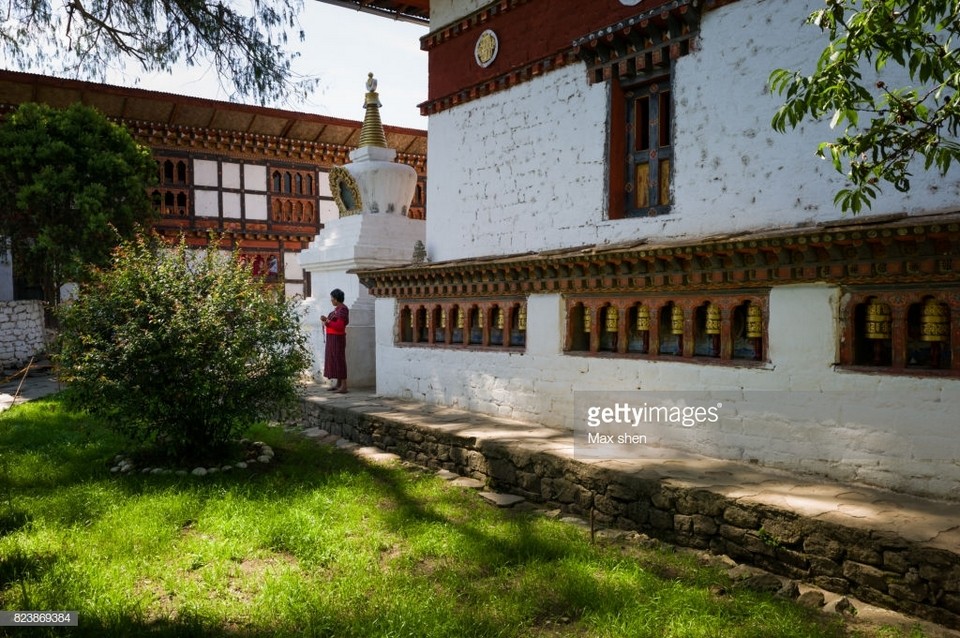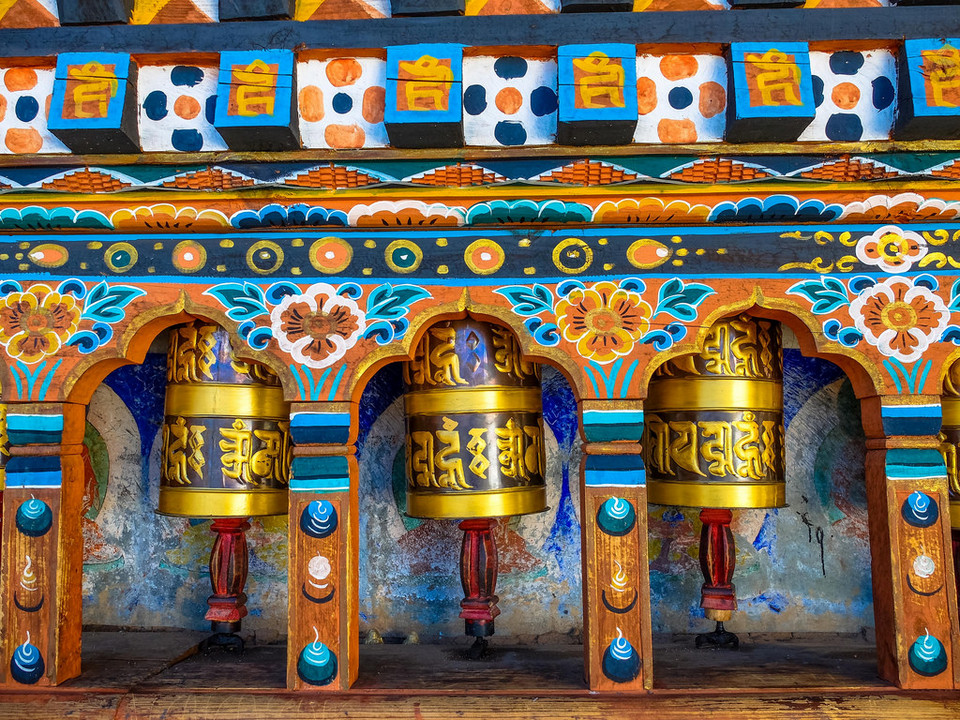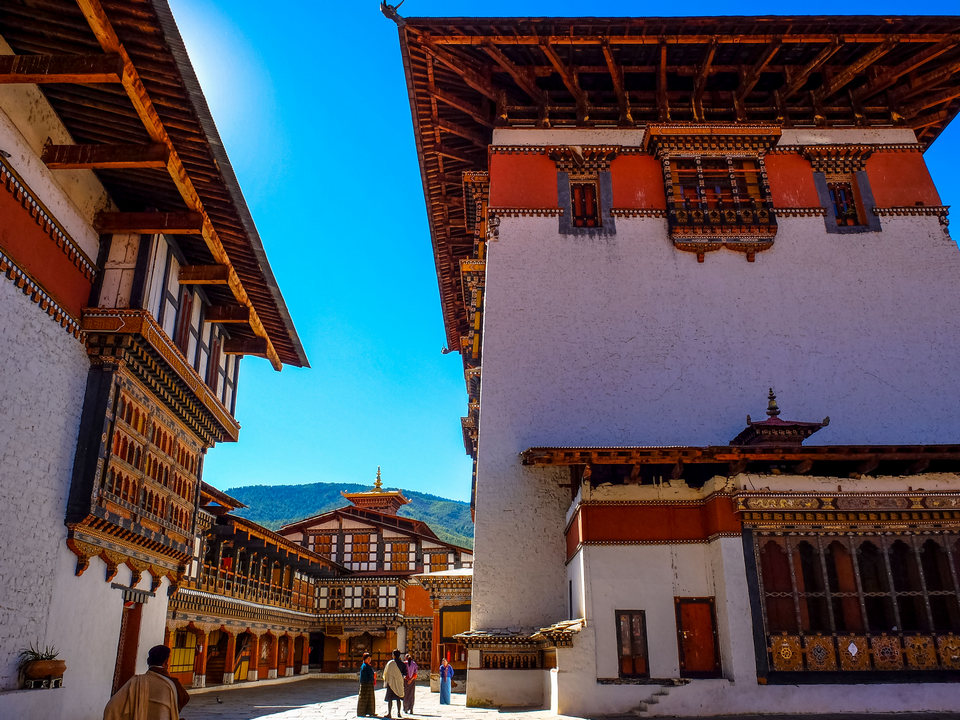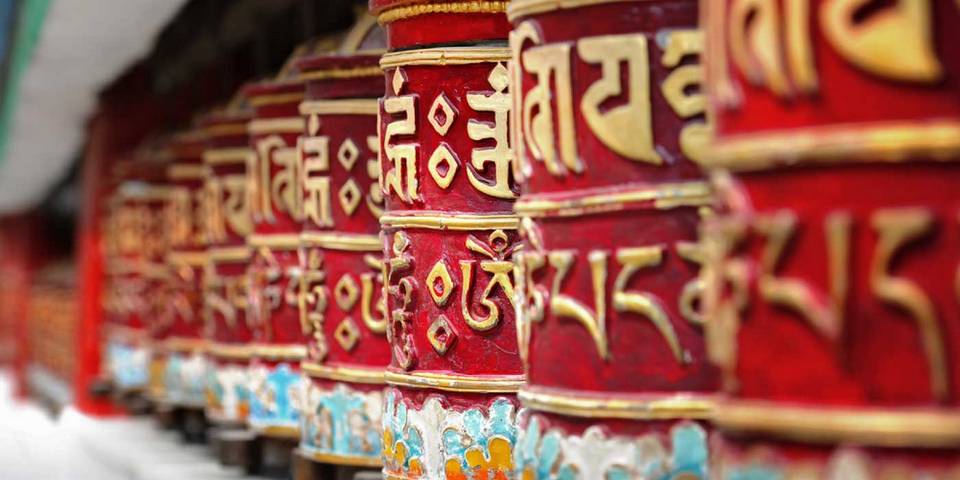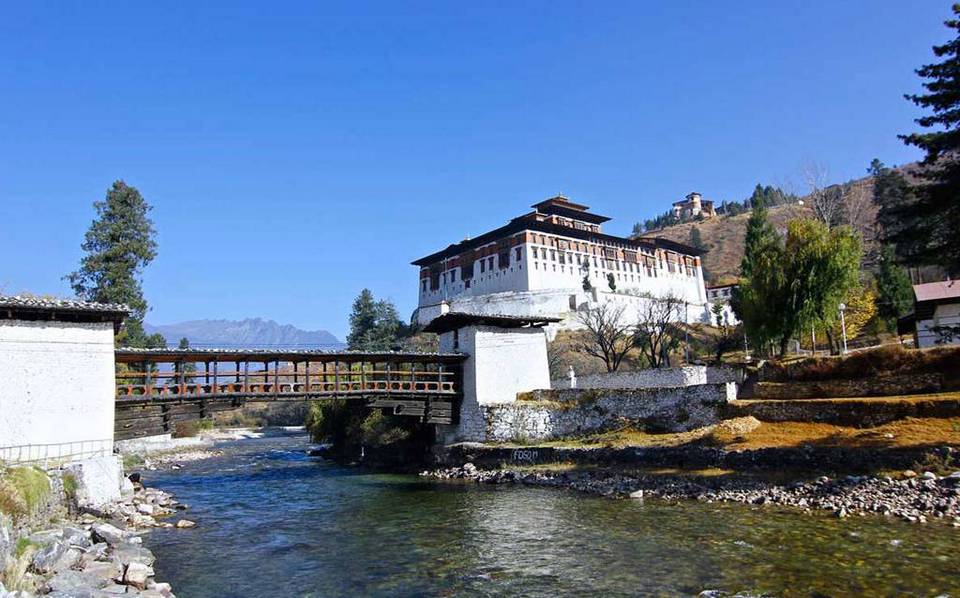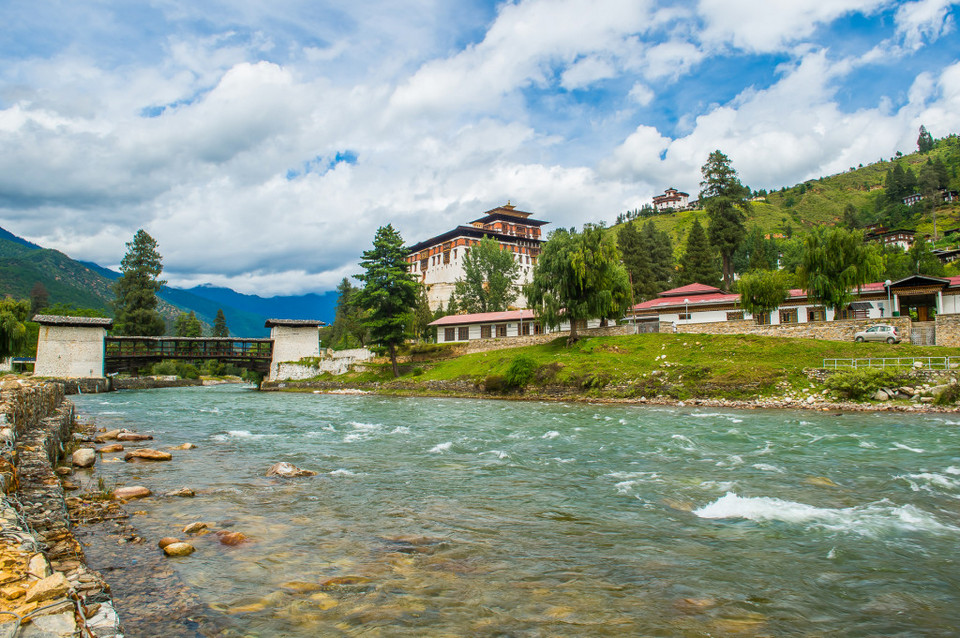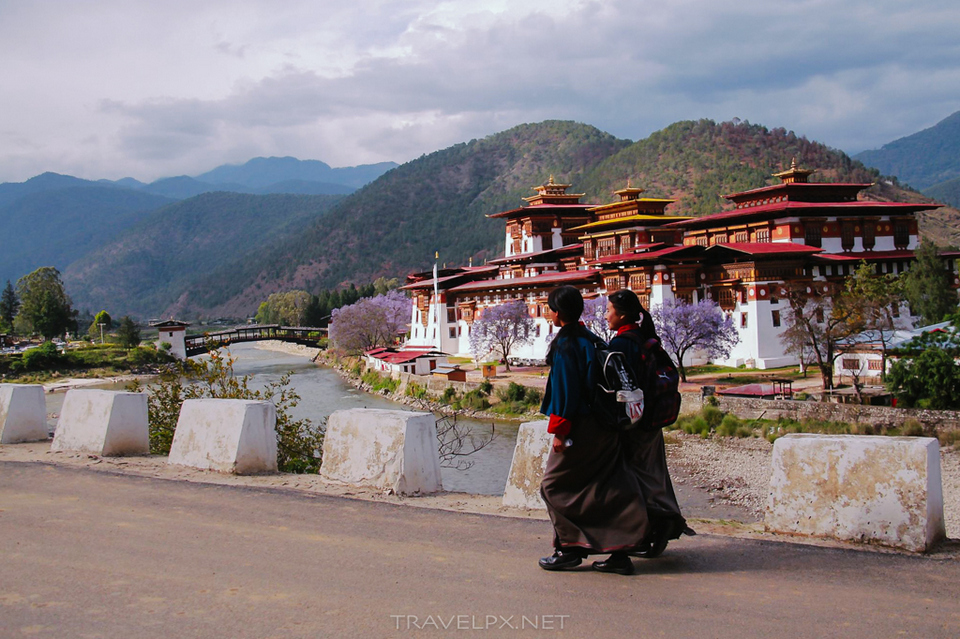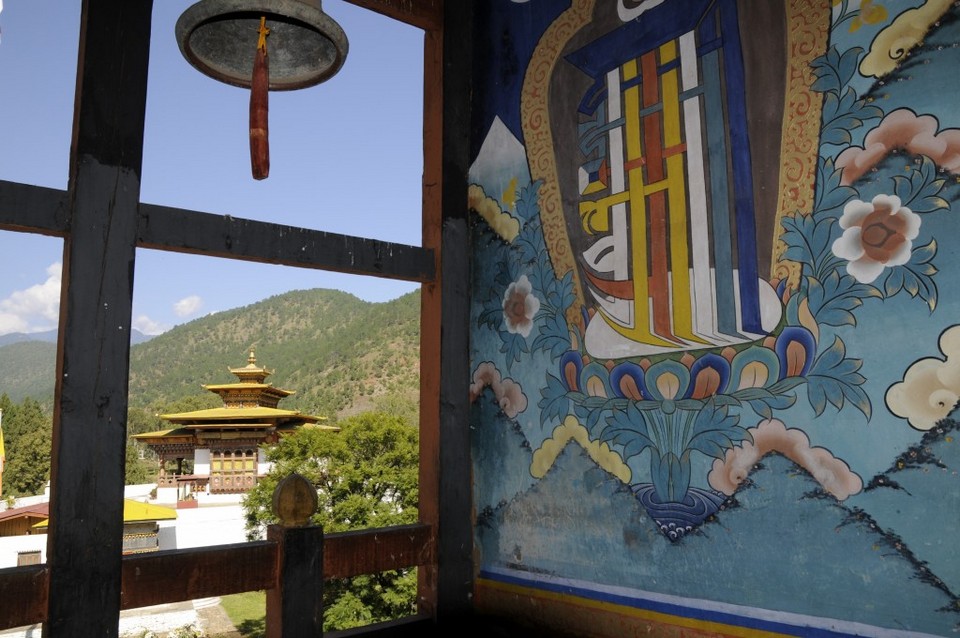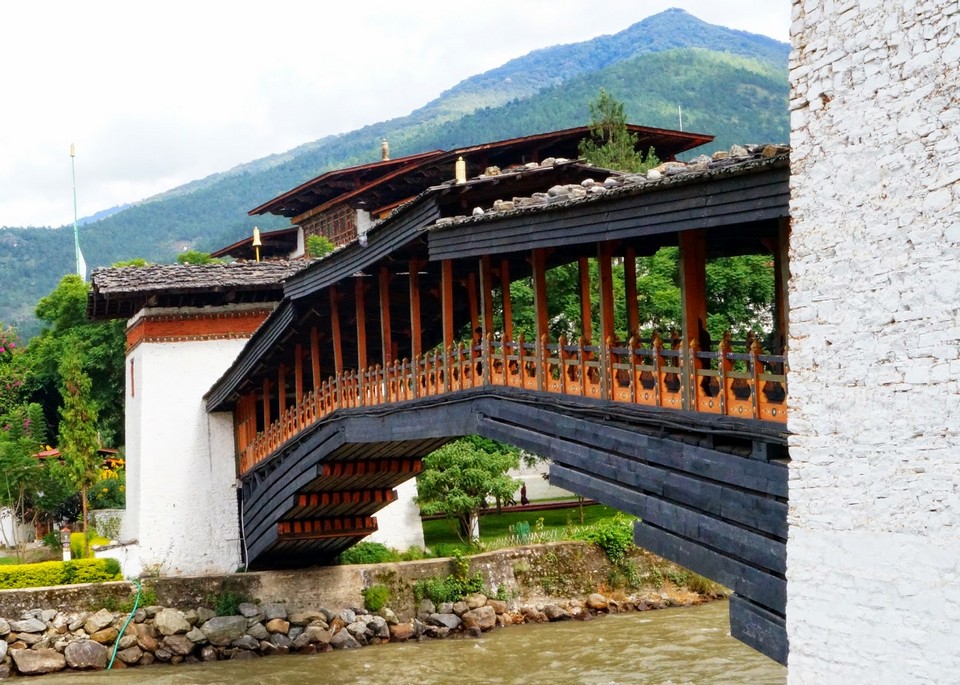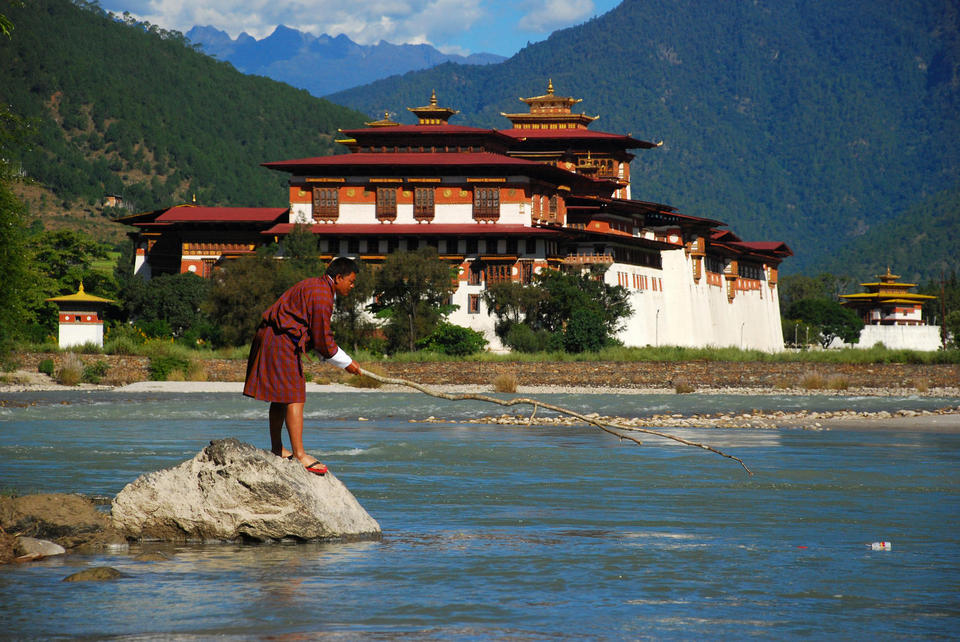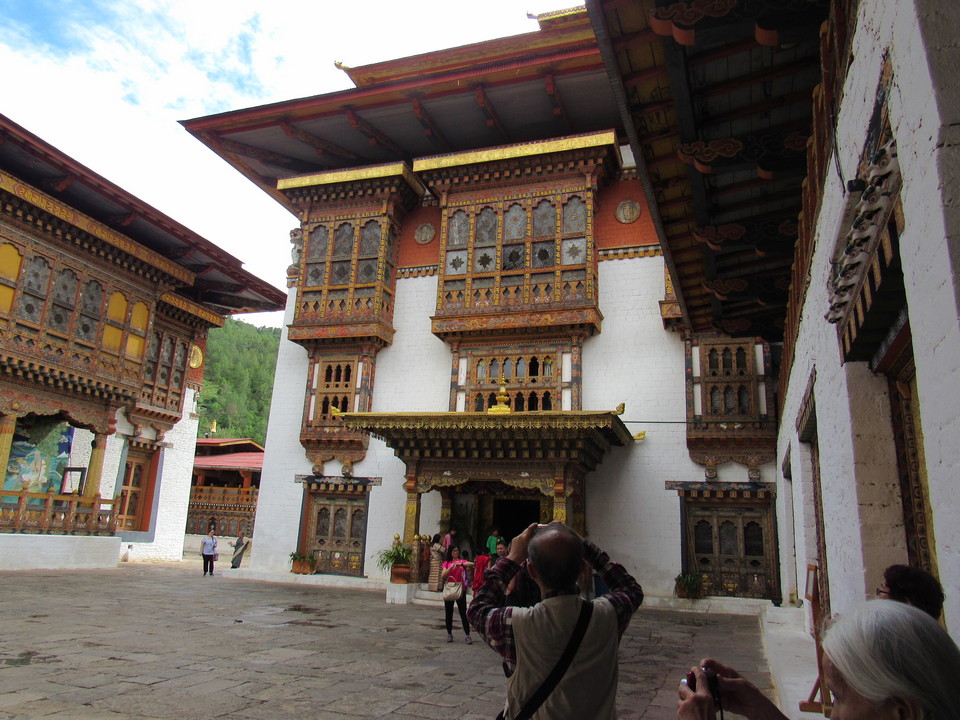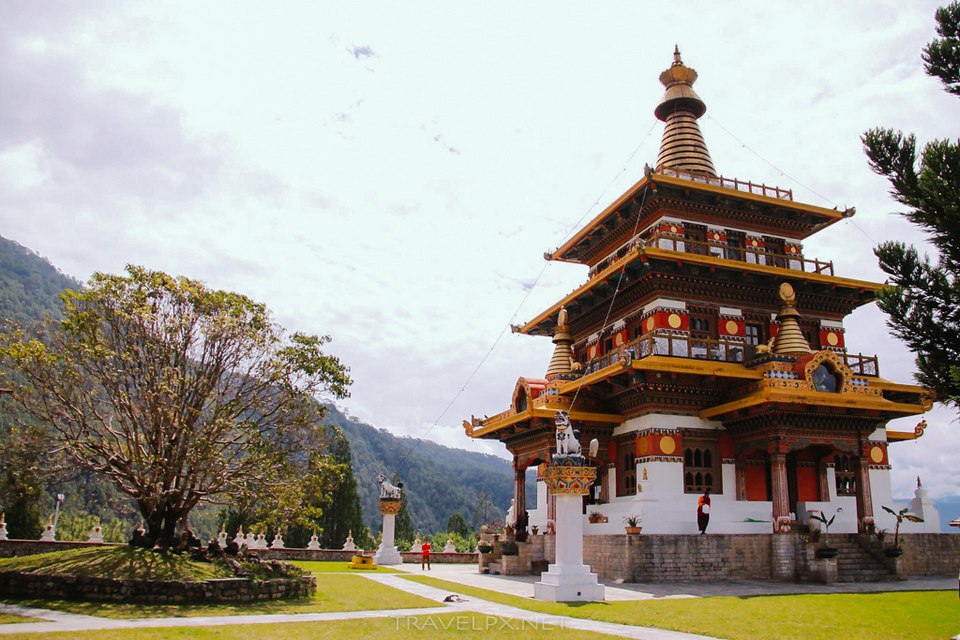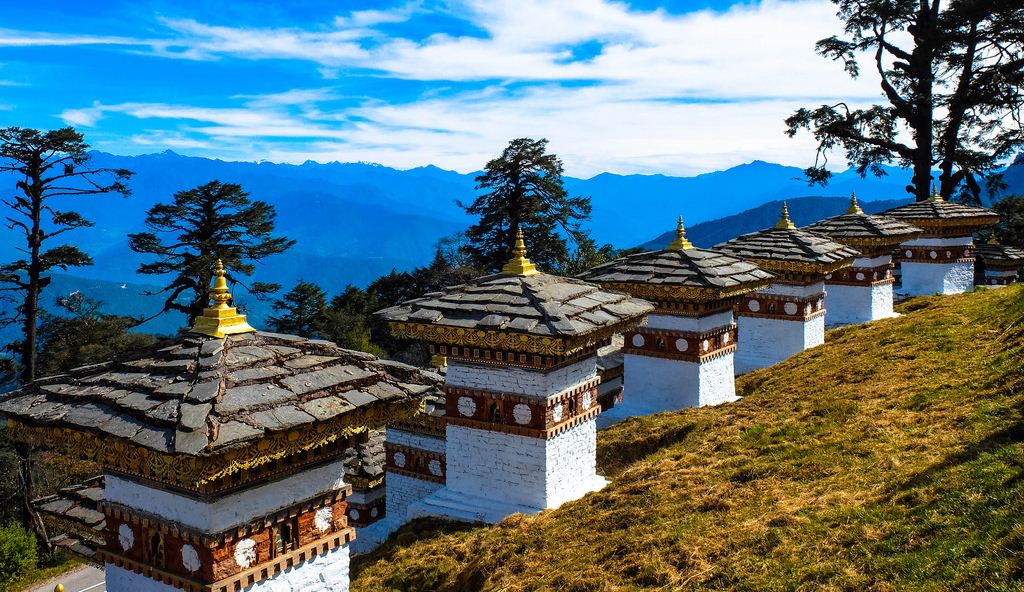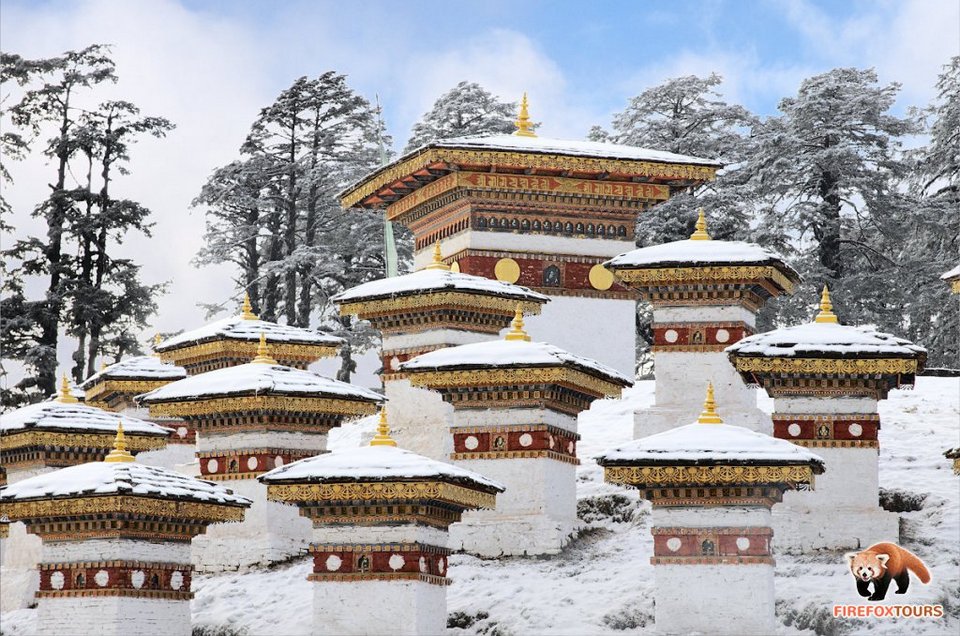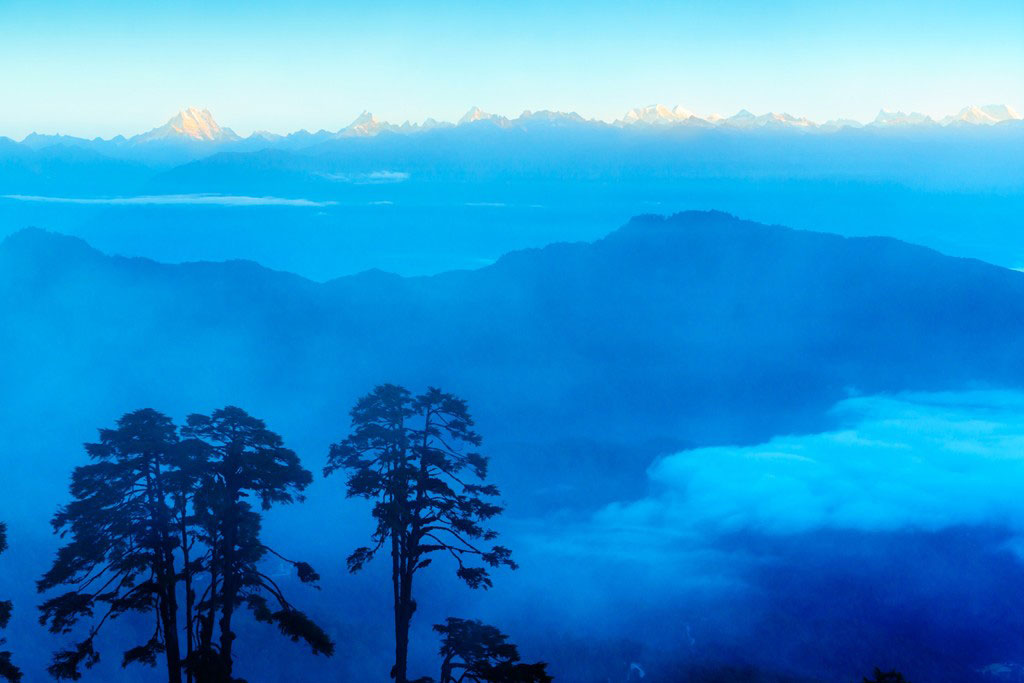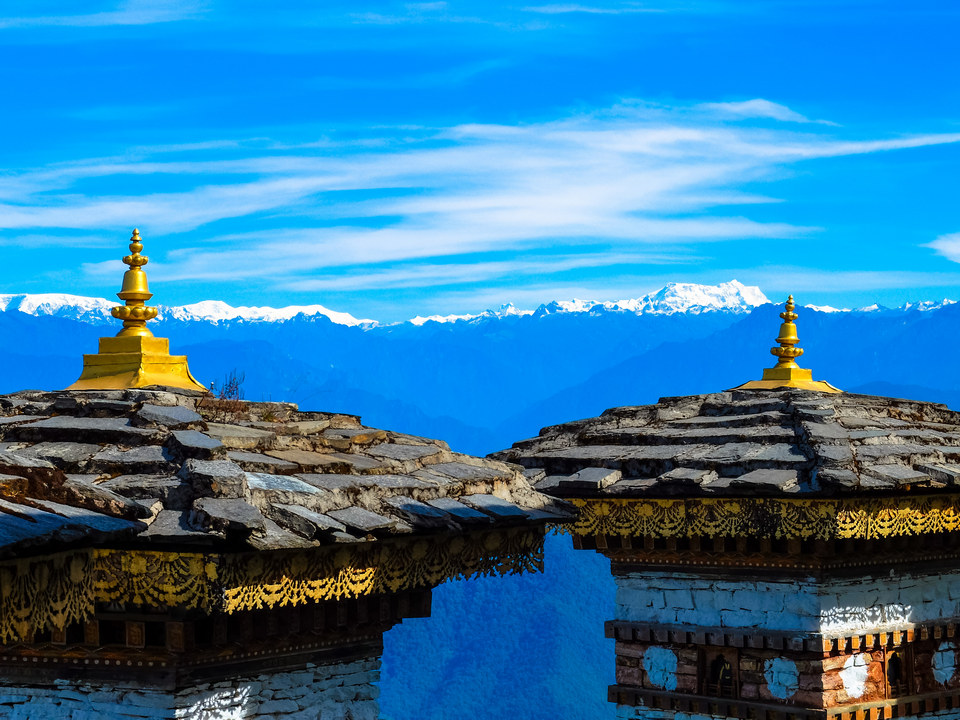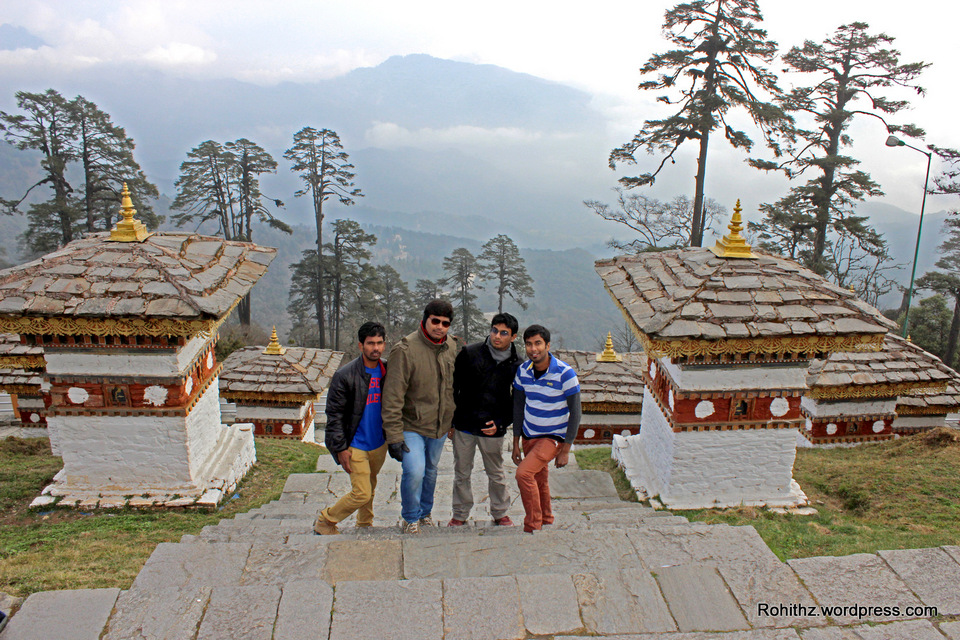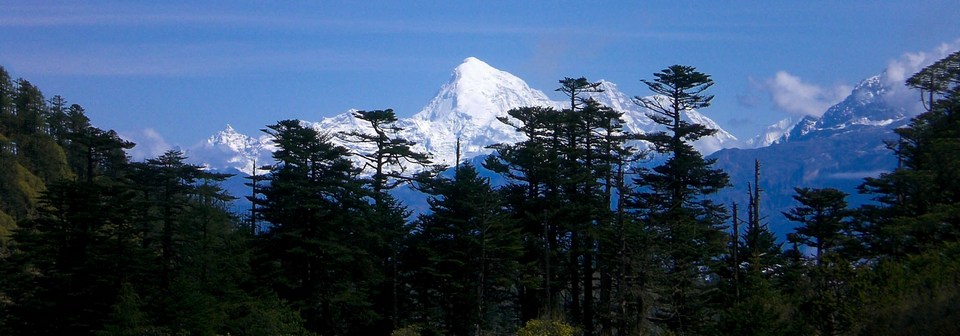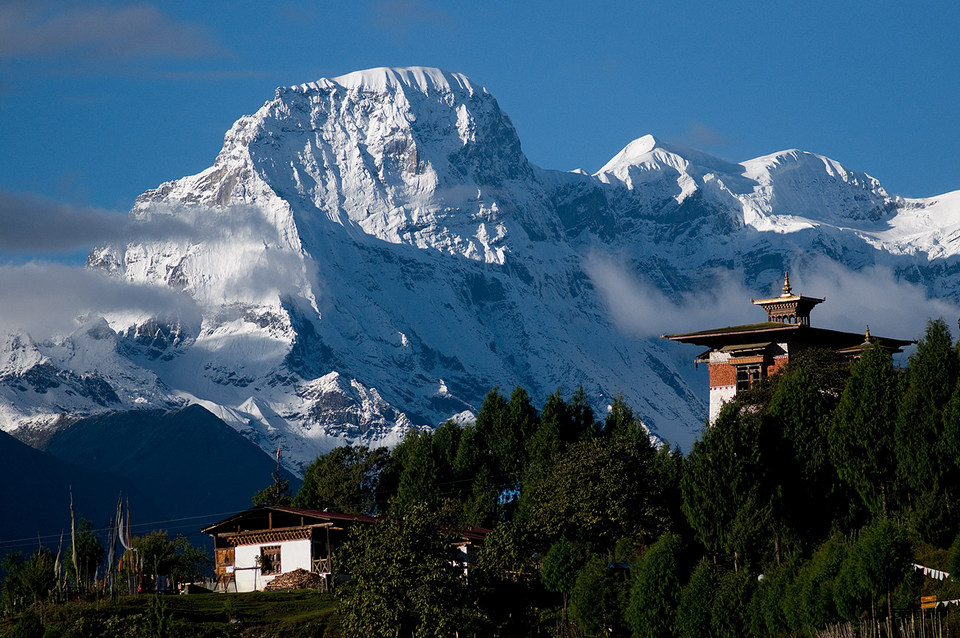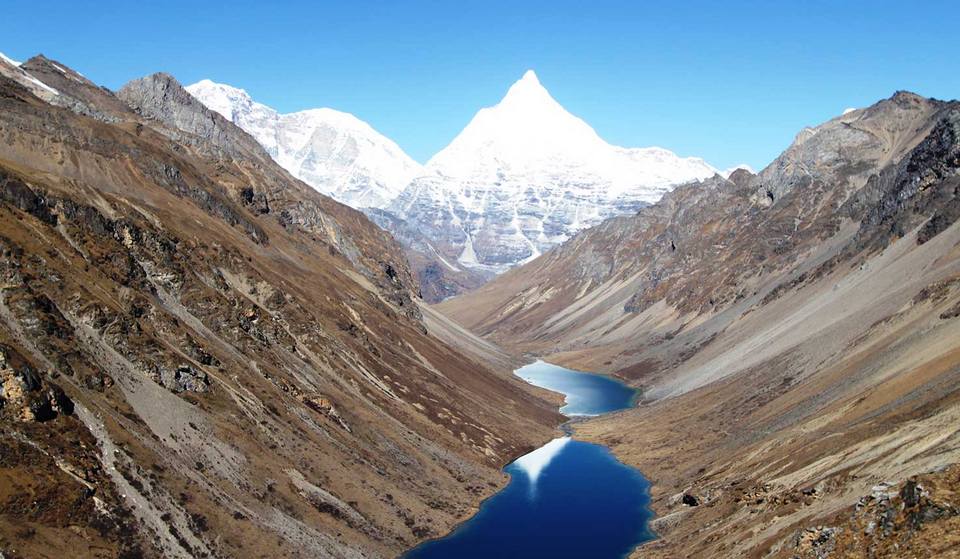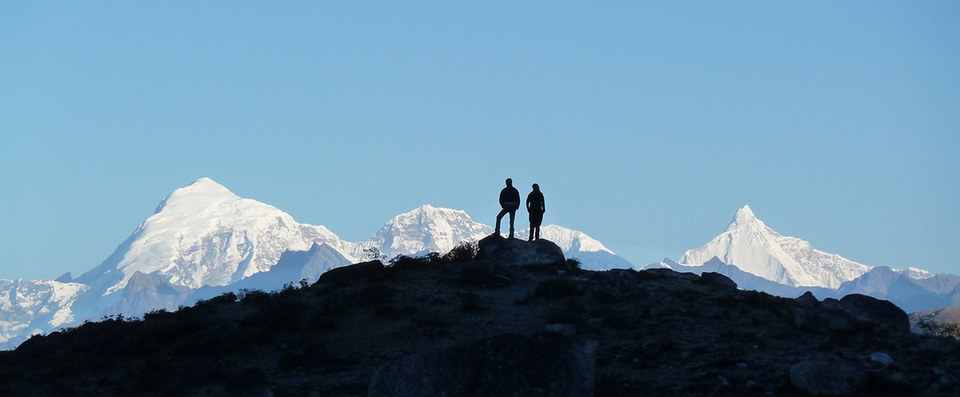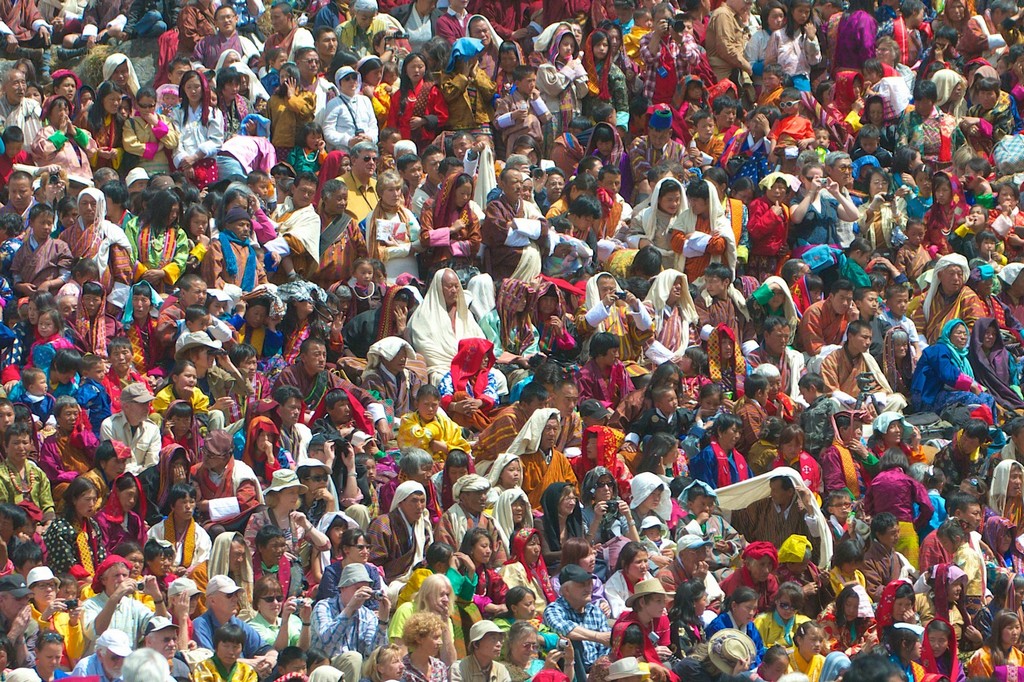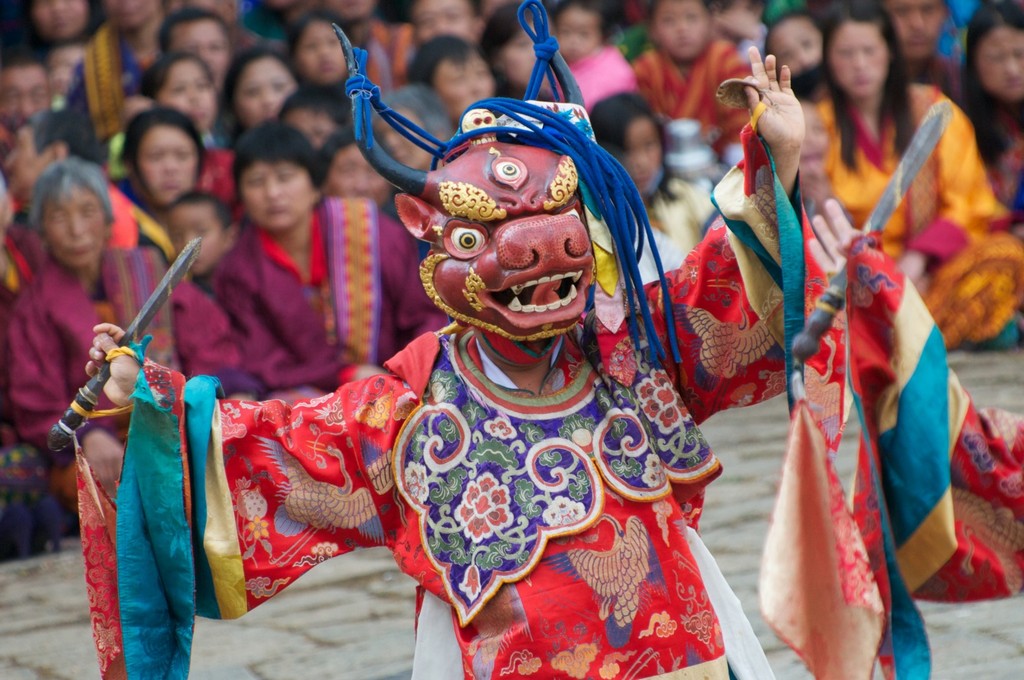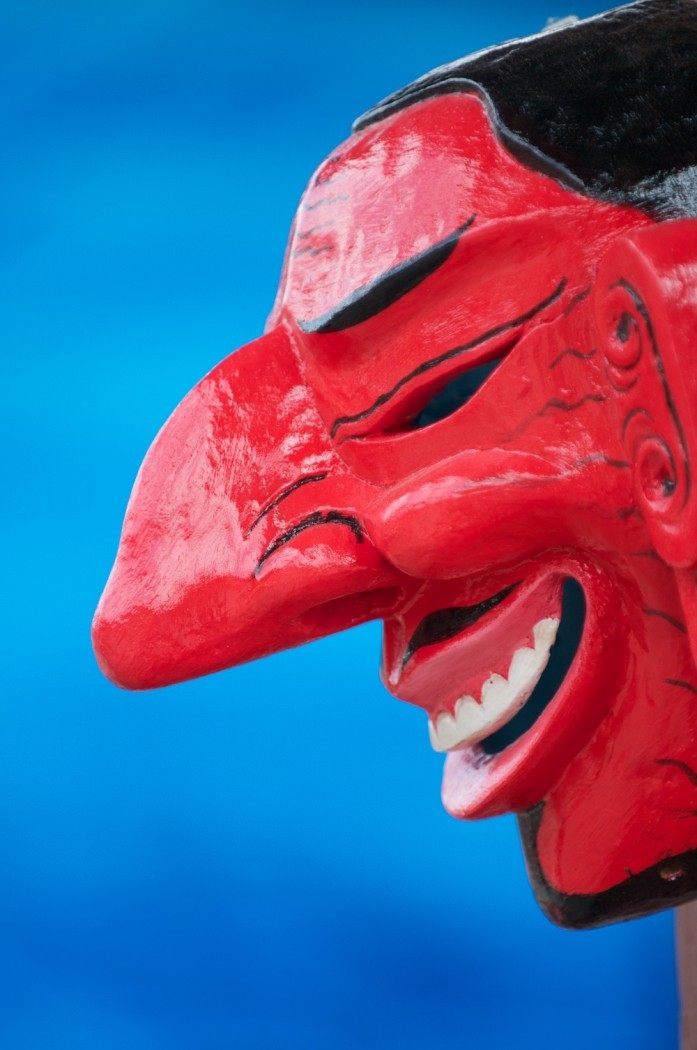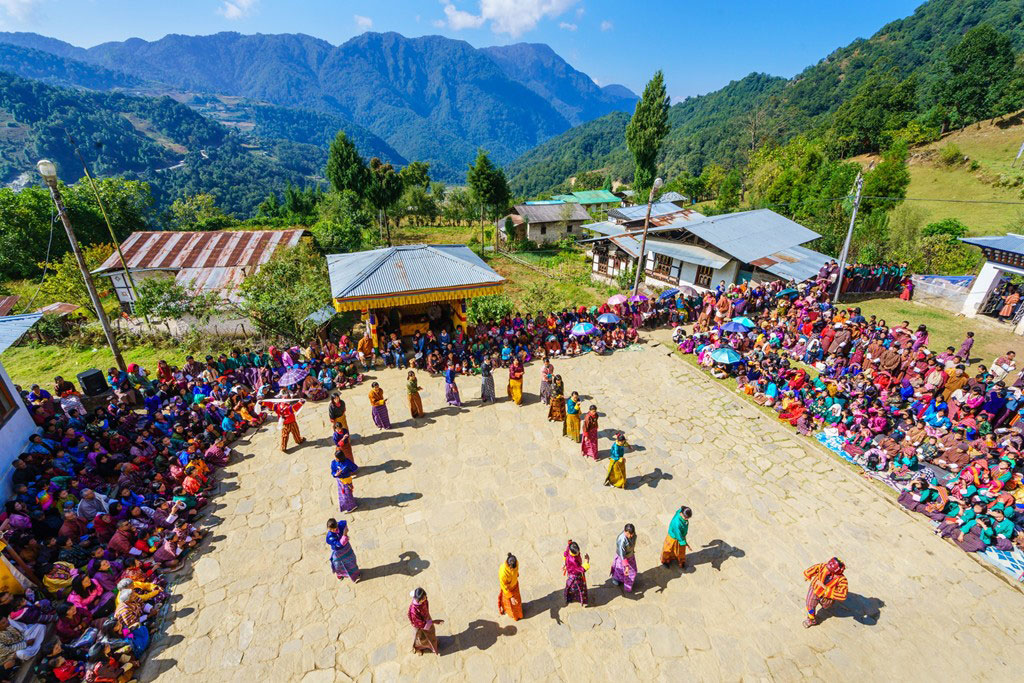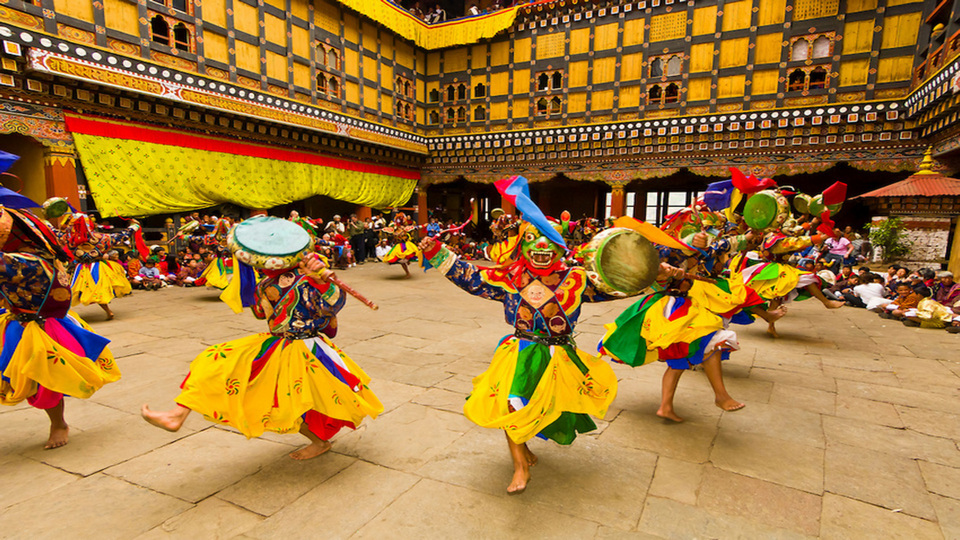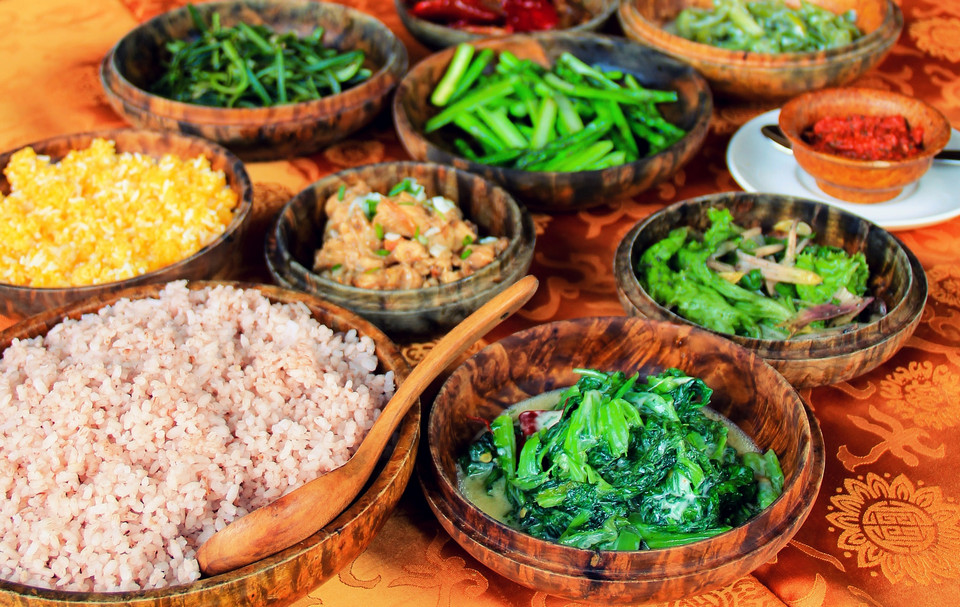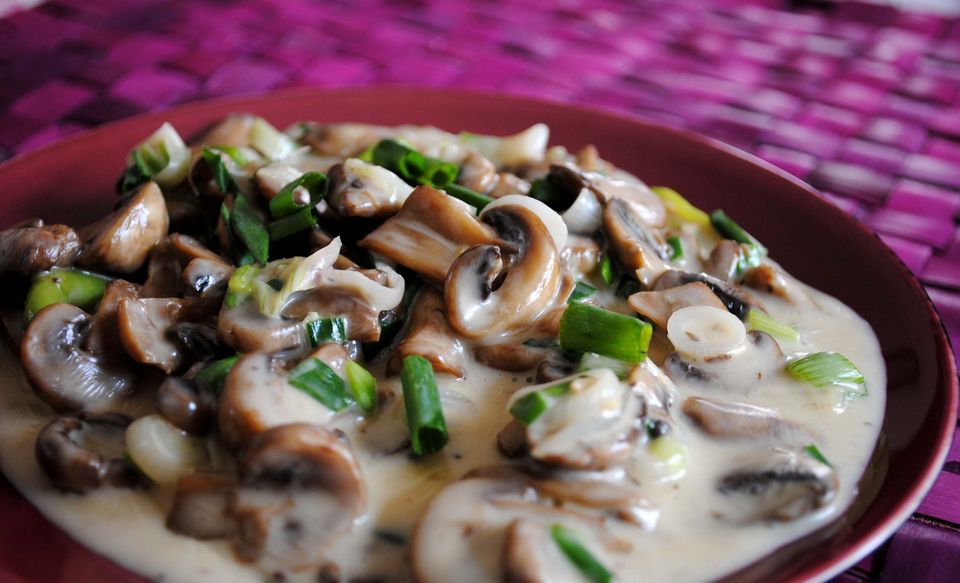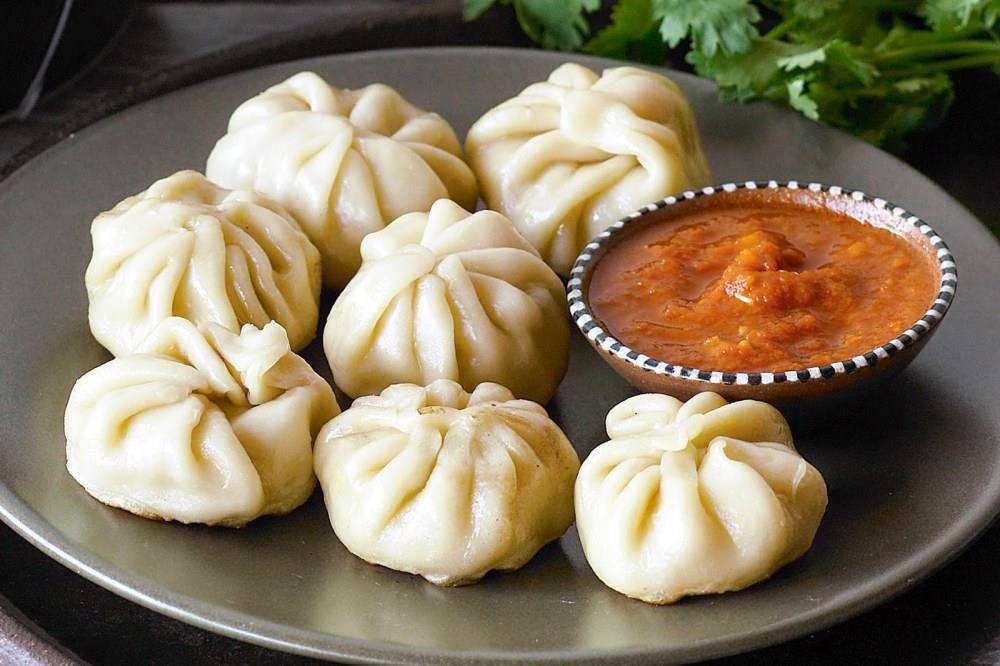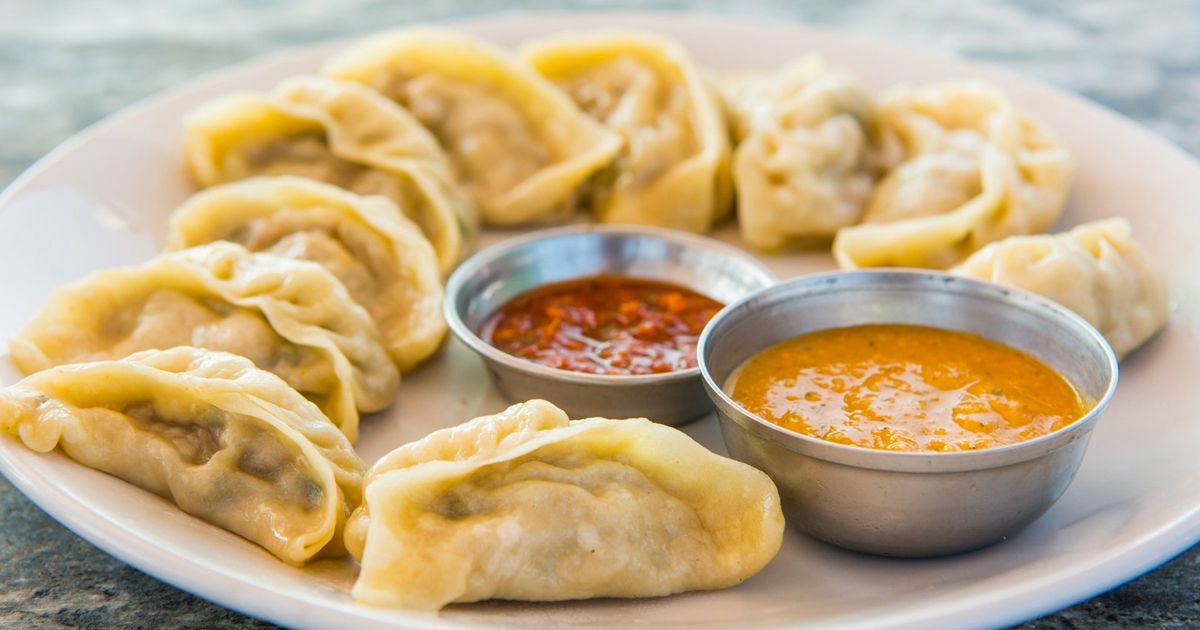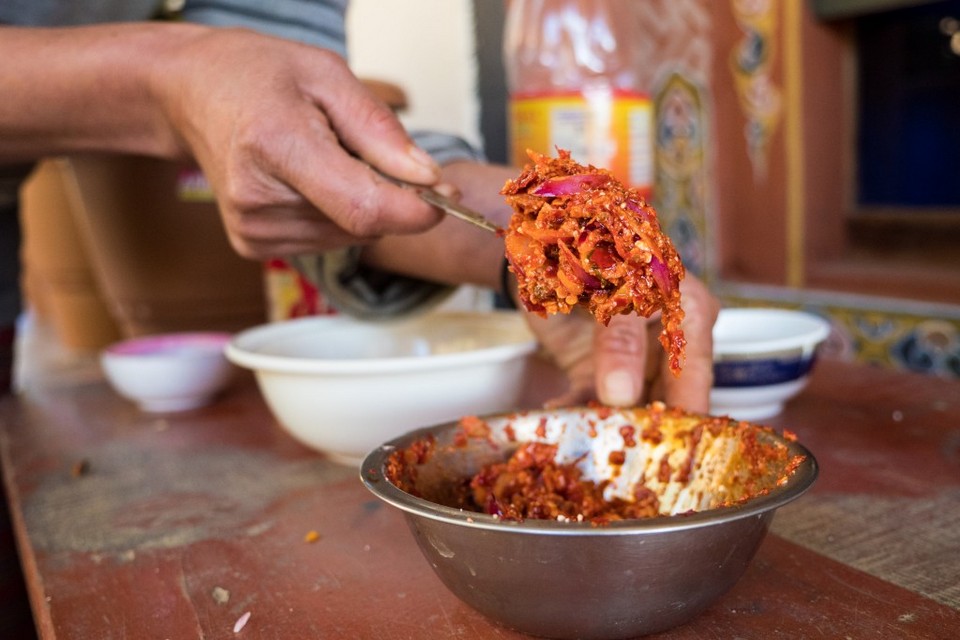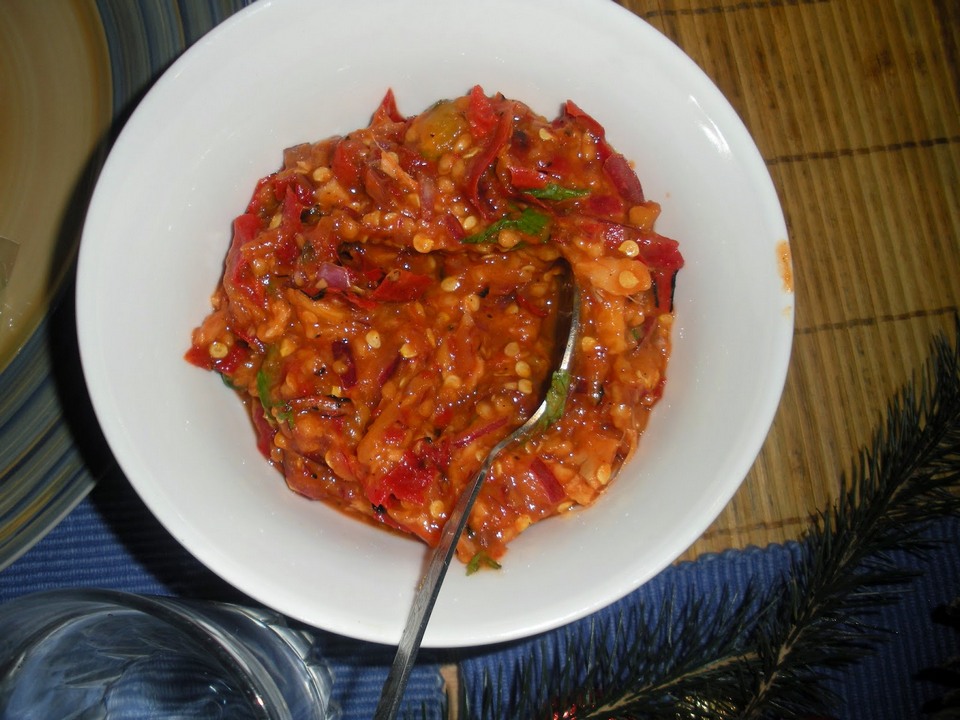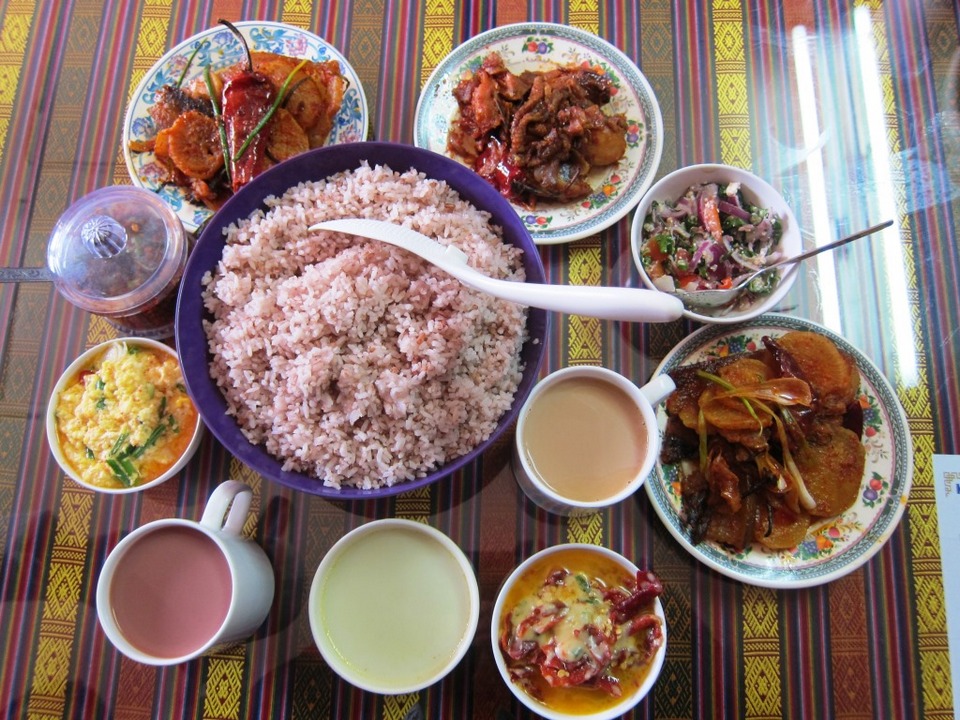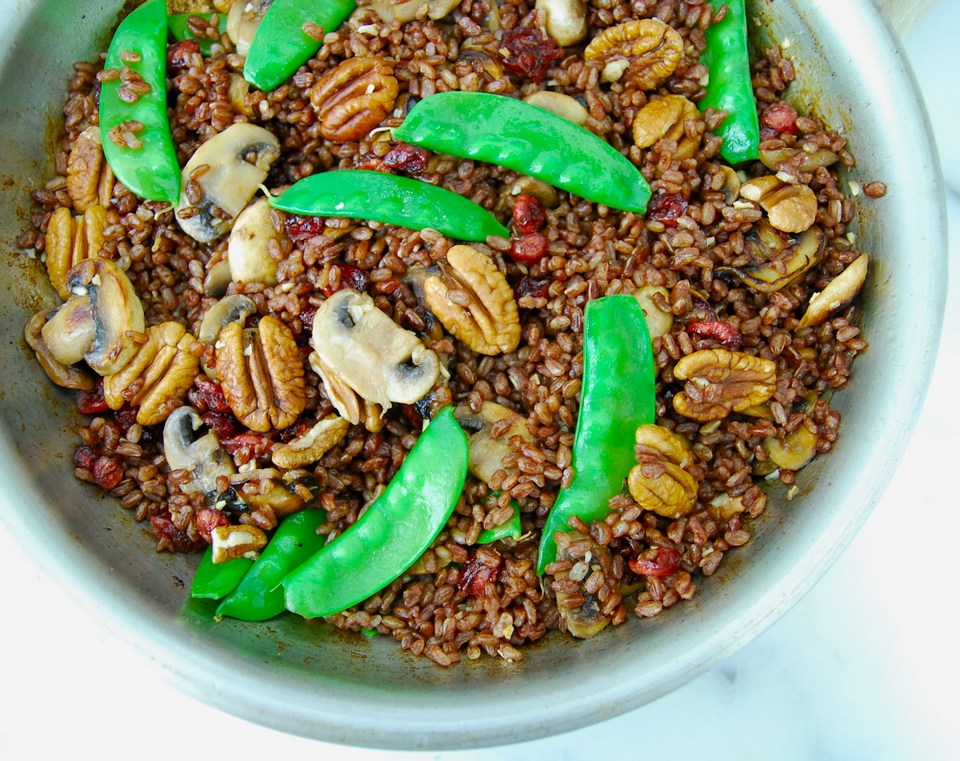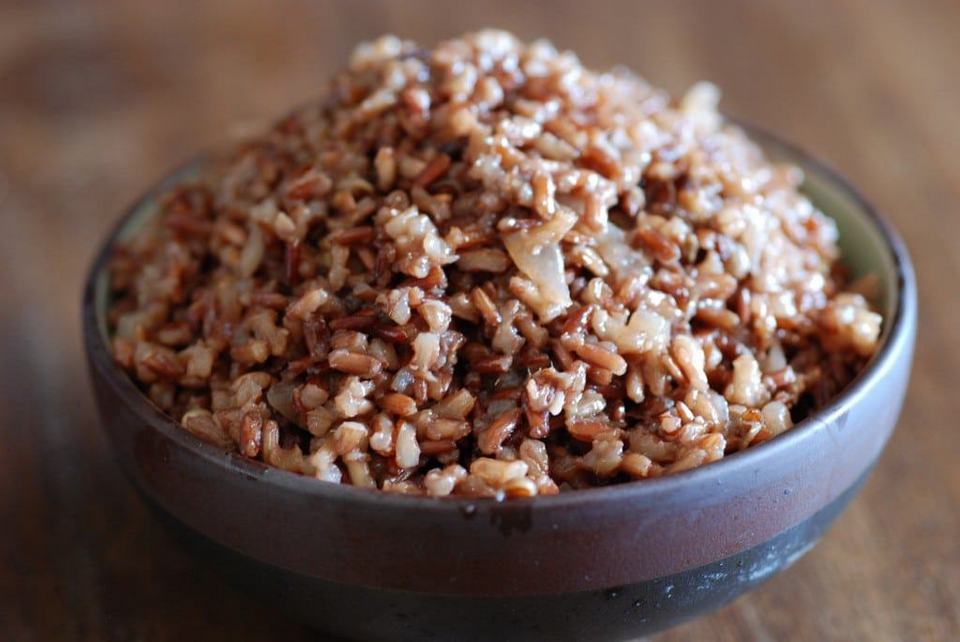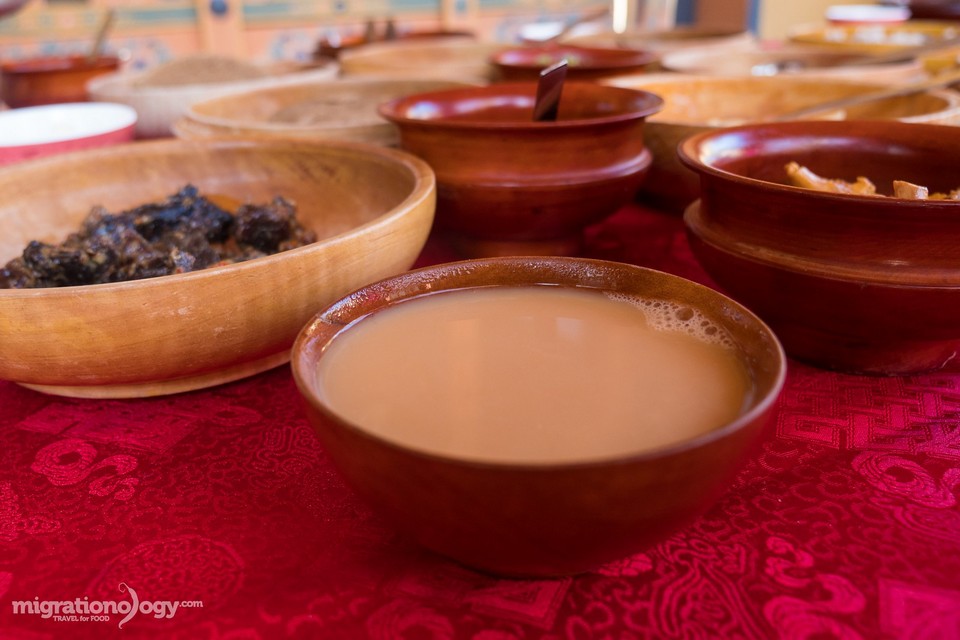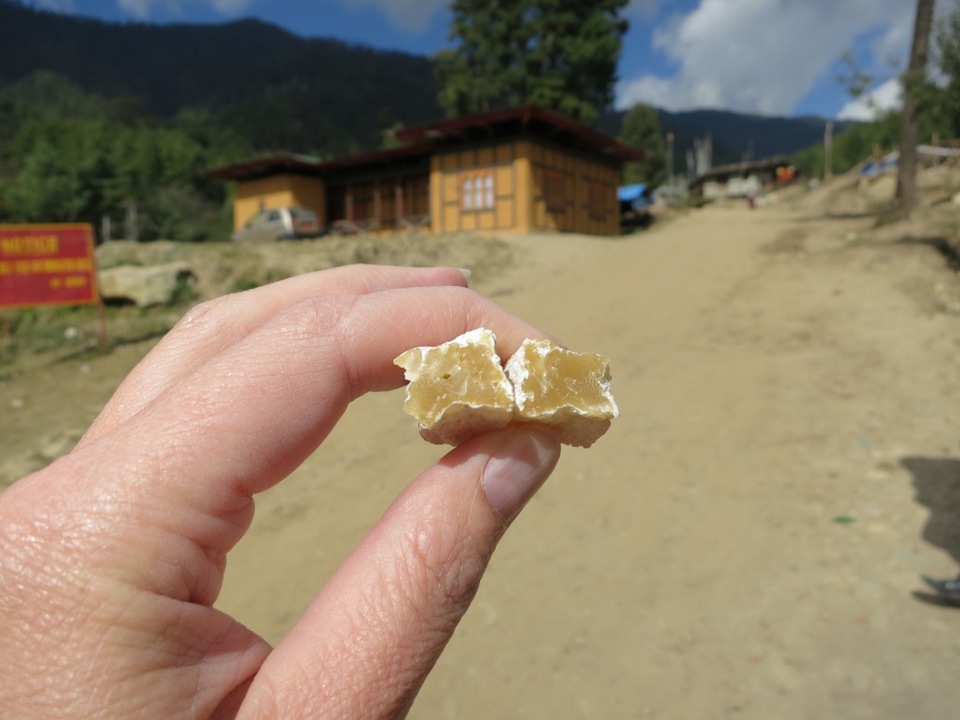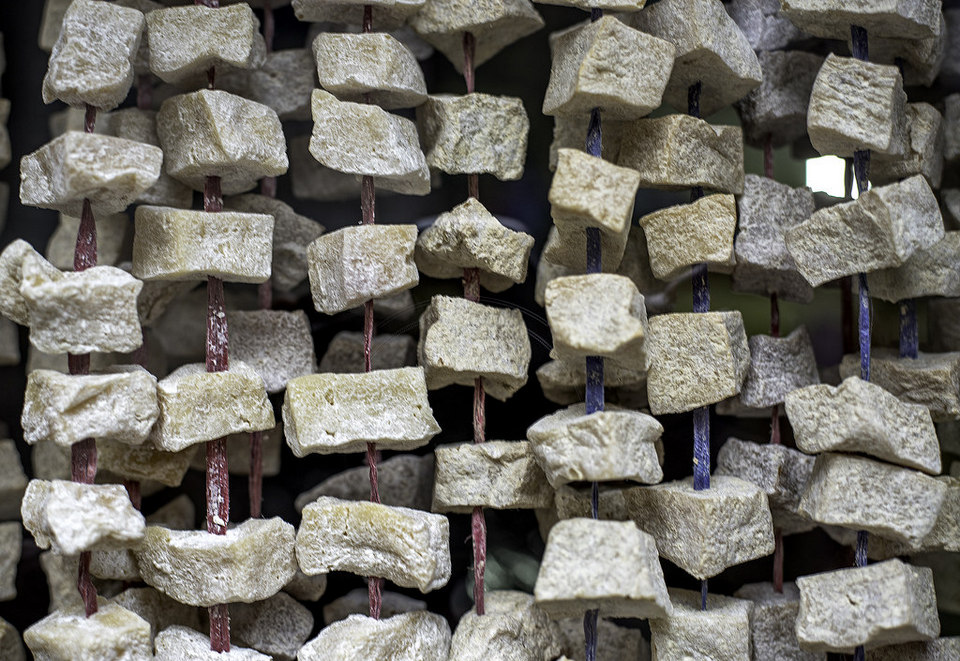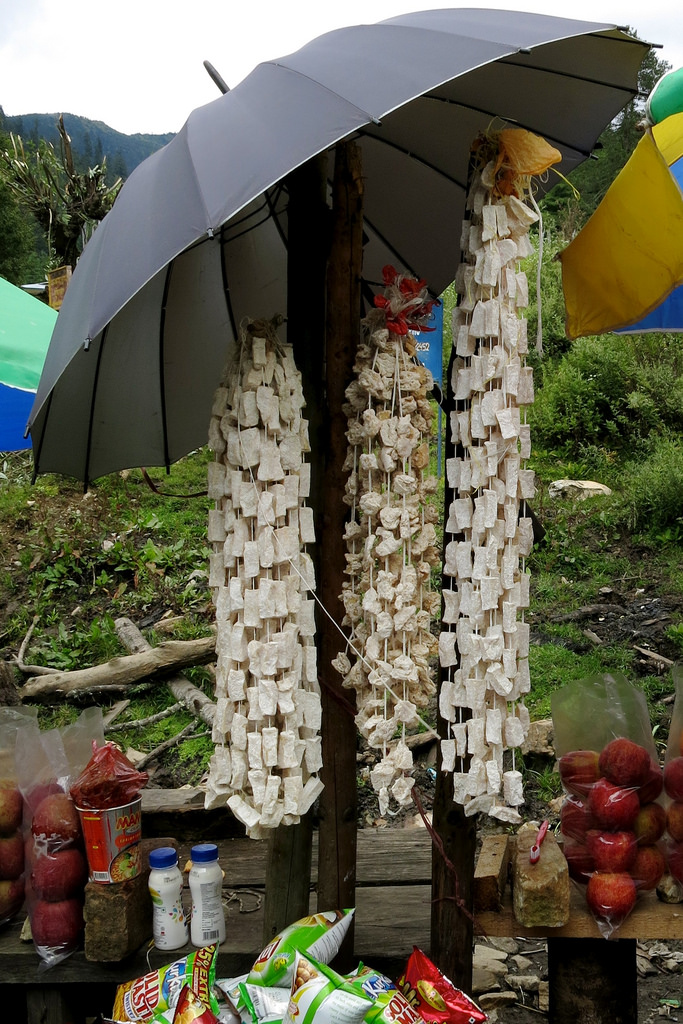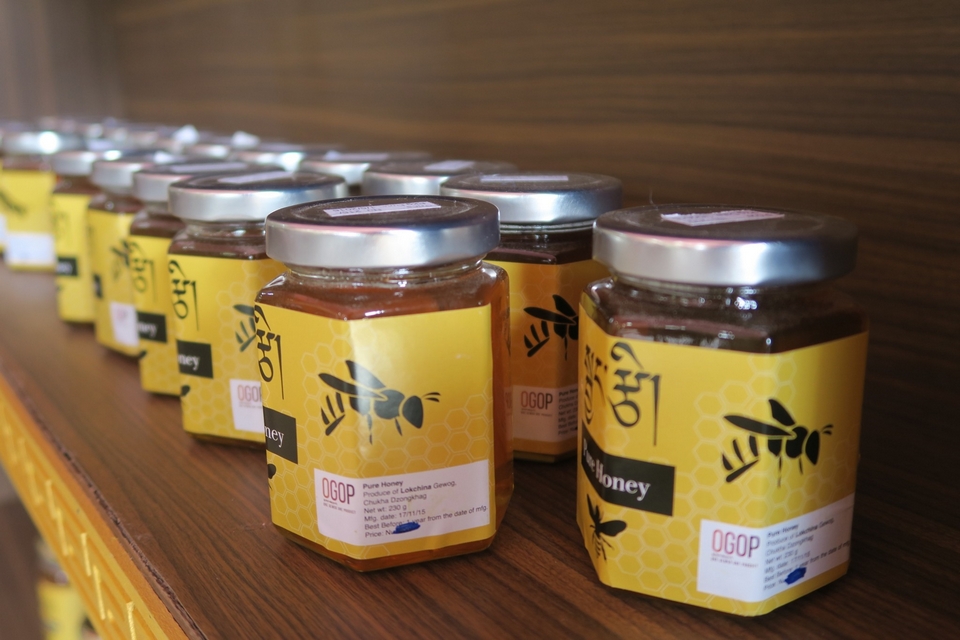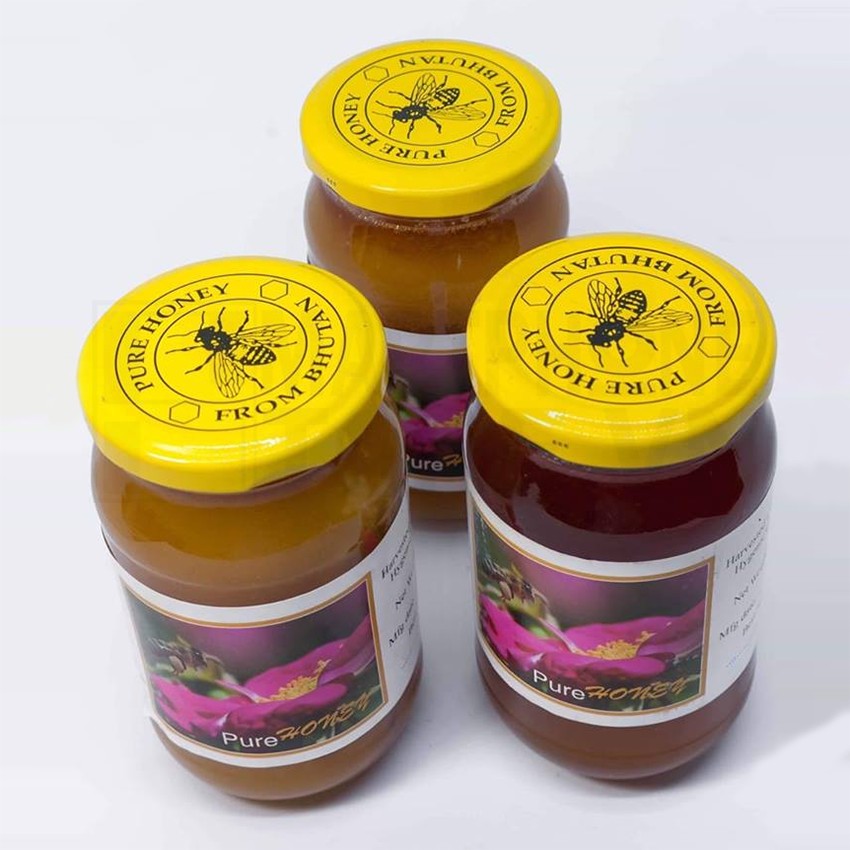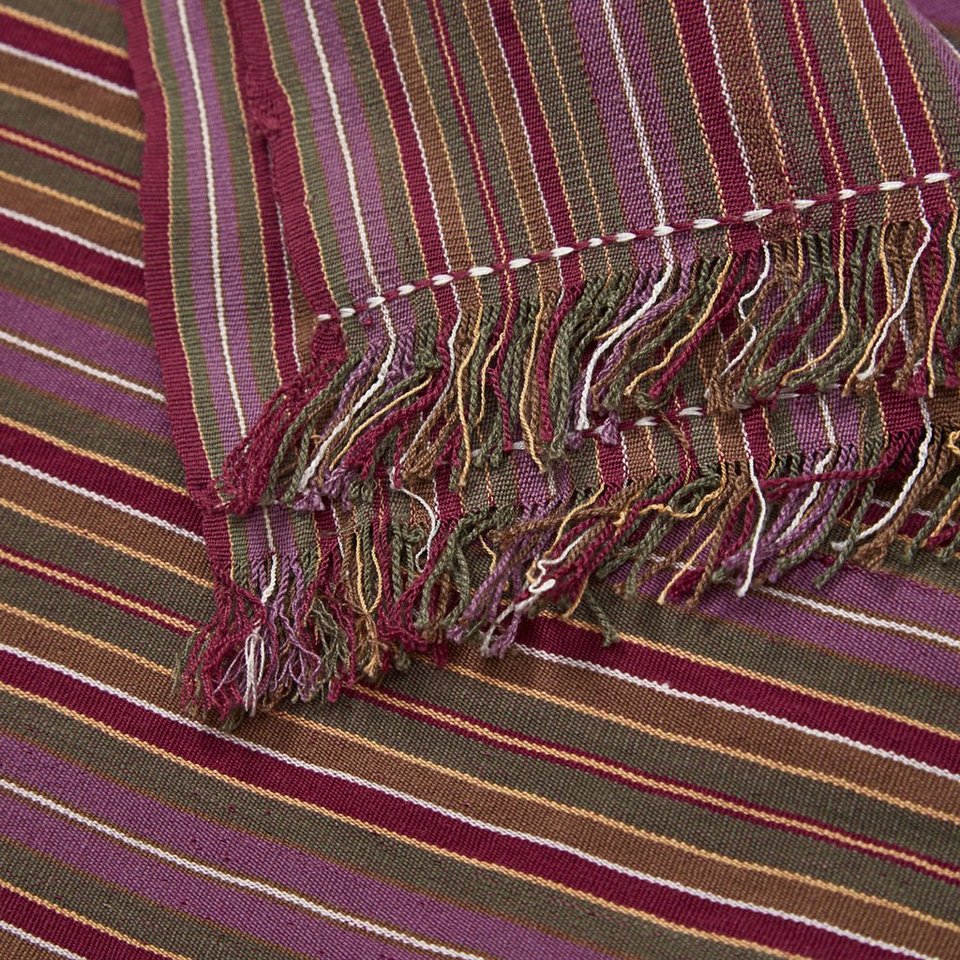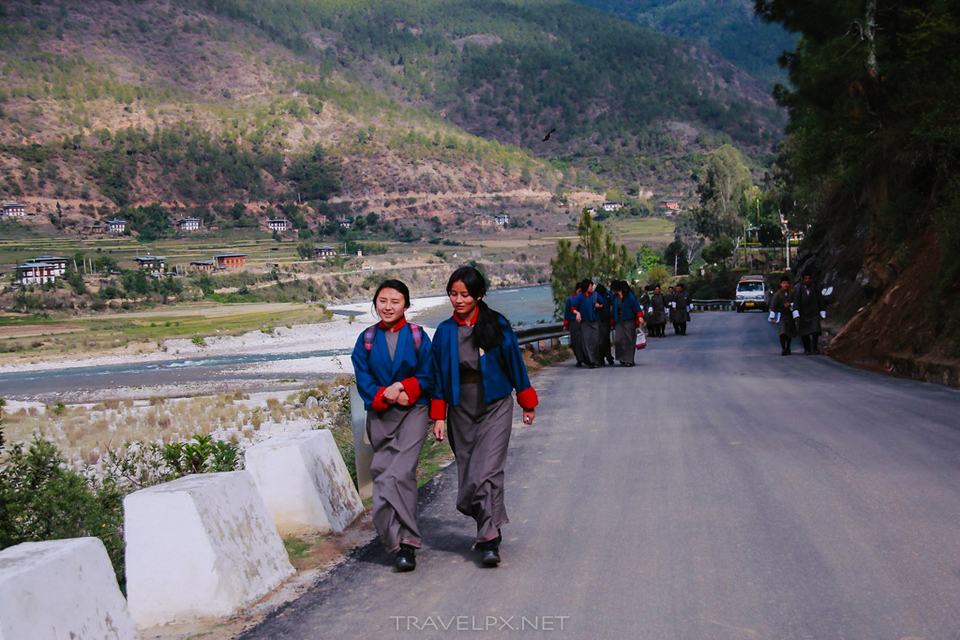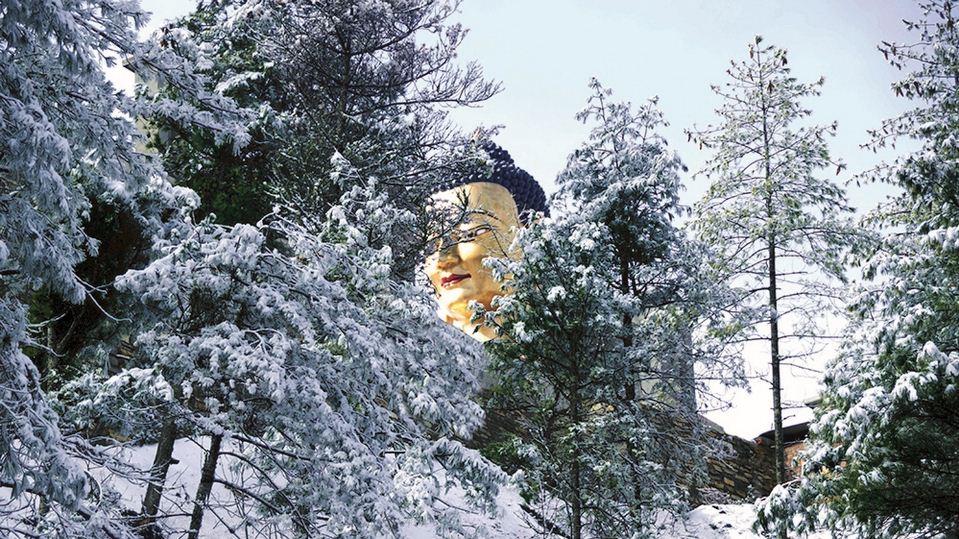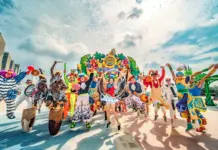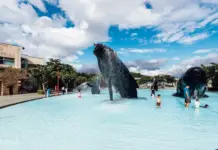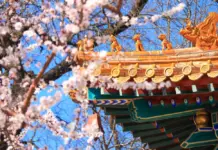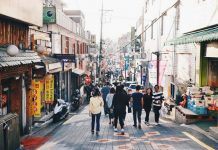Dzong is the architectural monastery and fortress typically of the Himalayan countries, most notably is in Bhutan. These monasteries and fortresses are used as religious, military, administrative and social centers. It is also the site for annual religious festivals.
- Exploring top 7 most beautiful towns in Germany you should visit at least once in your lifetime
- Malaysia travel blog — The fullest Malaysia travel guide for first-timers
- Ngong Ping guide. The itinerary & what to do in Ngong Ping 360
- Ocean Park Hong Kong blog — The Ocean Park Hong Kong guide & what to do in Ocean Park Hong Kong
- Bangkok travel blog — The fullest Bangkok travel guide & suggested Bangkok 3 days itinerary for first-timers
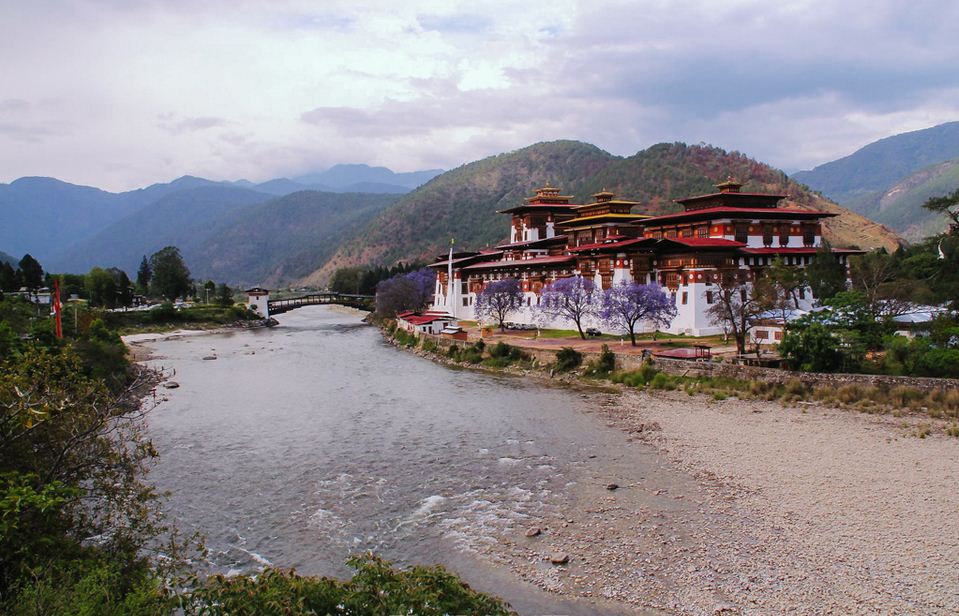
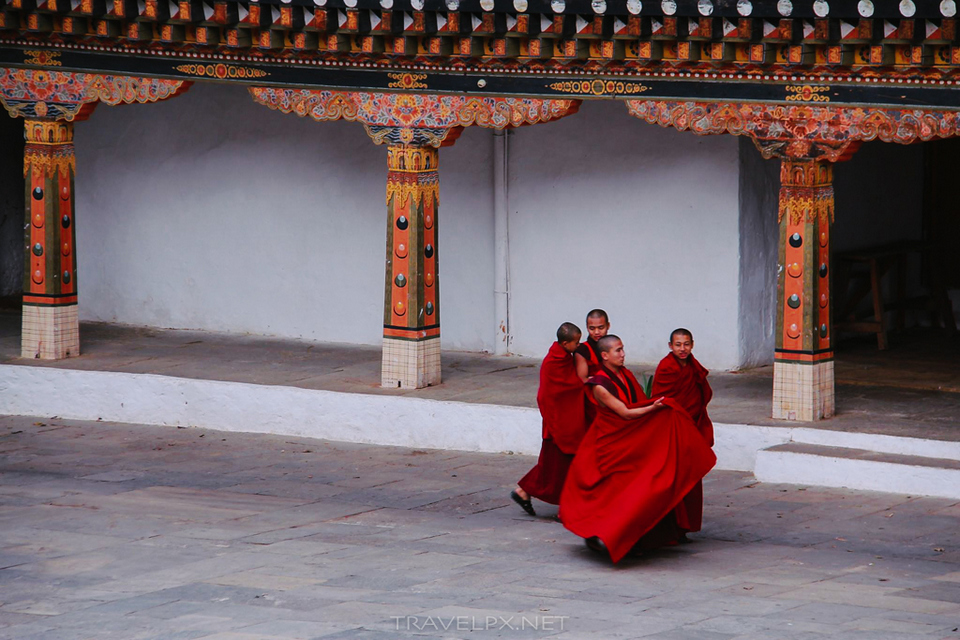
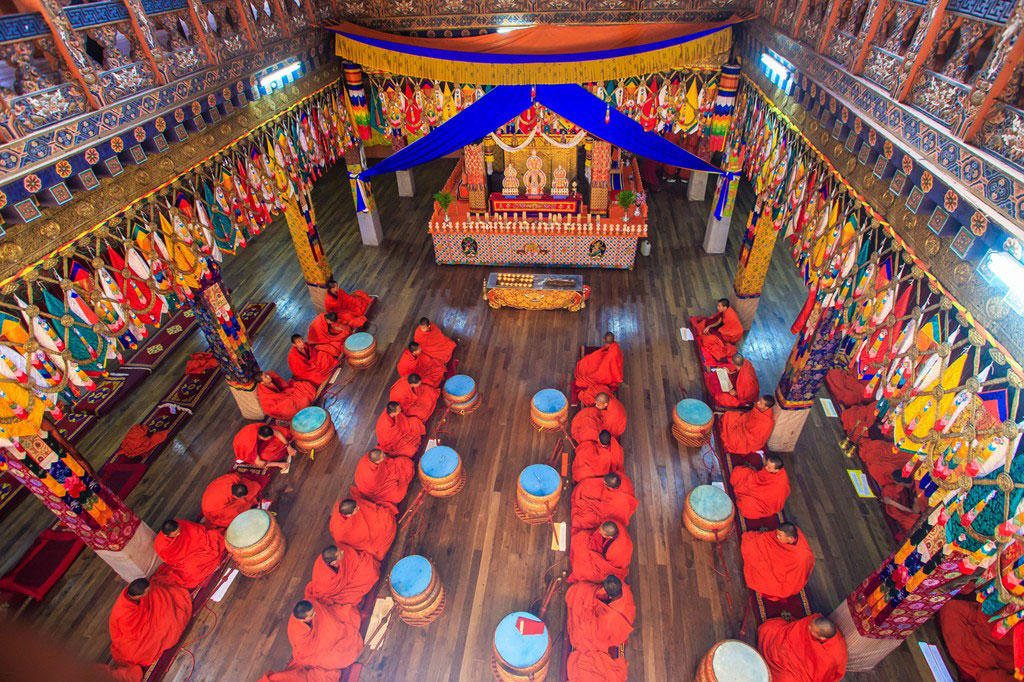
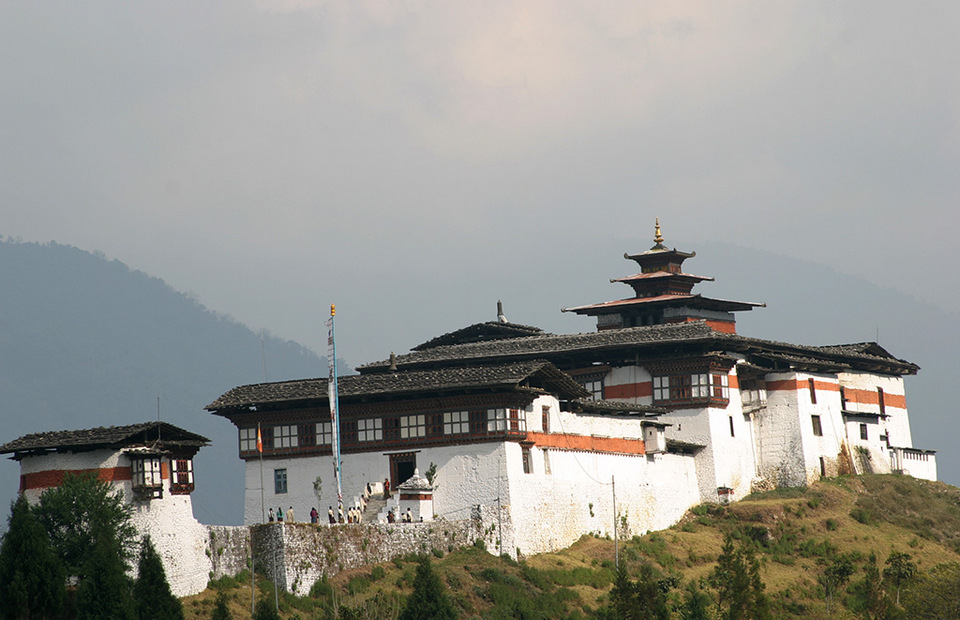
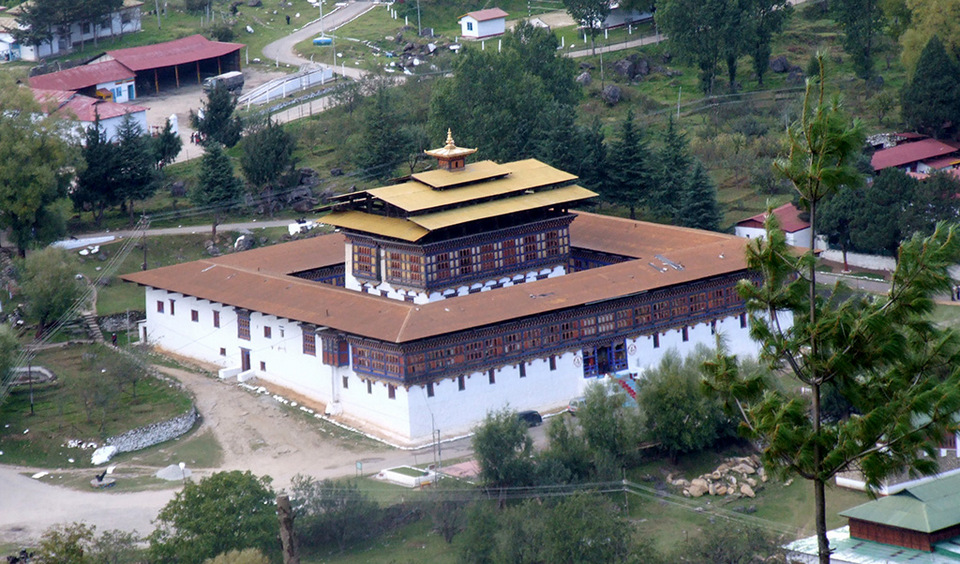
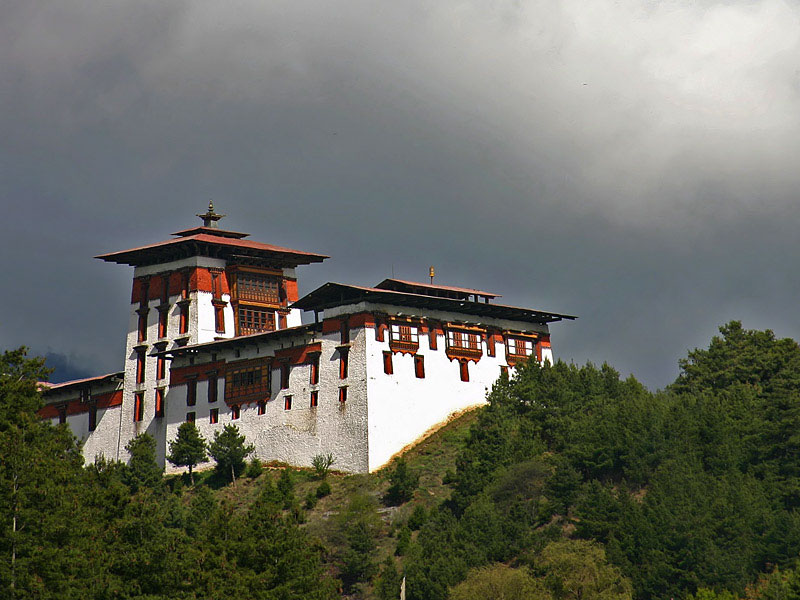
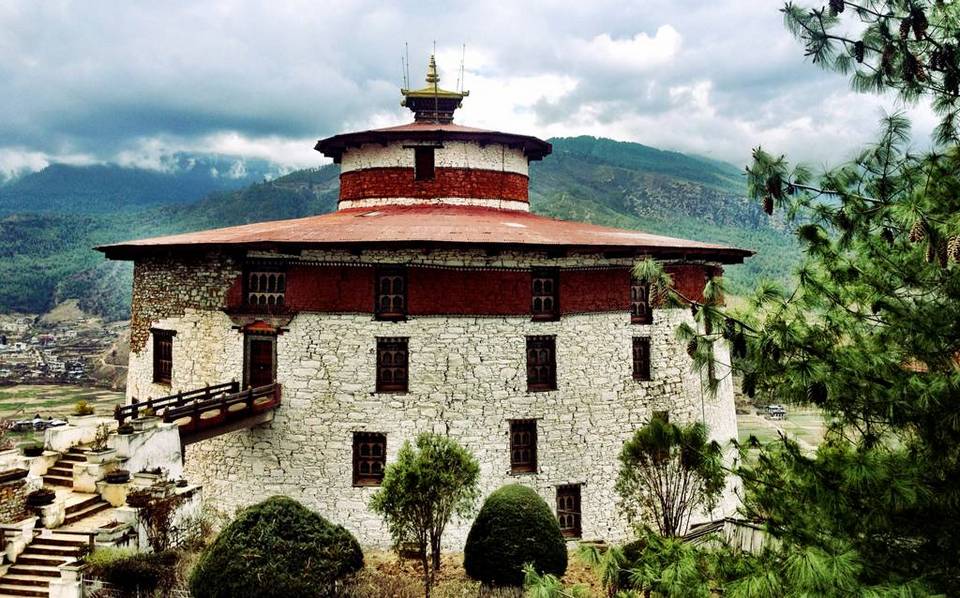
Paro
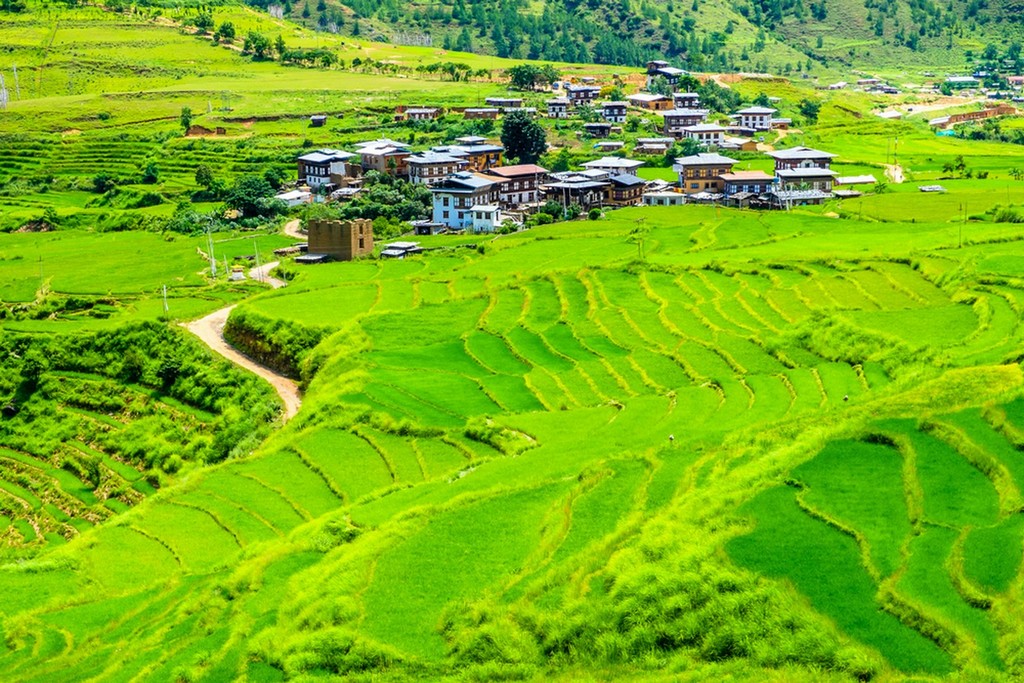
The town of Paro is considered to be Bhutan’s most historic and beautiful town with beautiful valleys, majestic natural scenery. Together with Thimphu and Punakha form the most famous tourist triangle in Bhutan.
Paro Taktsang
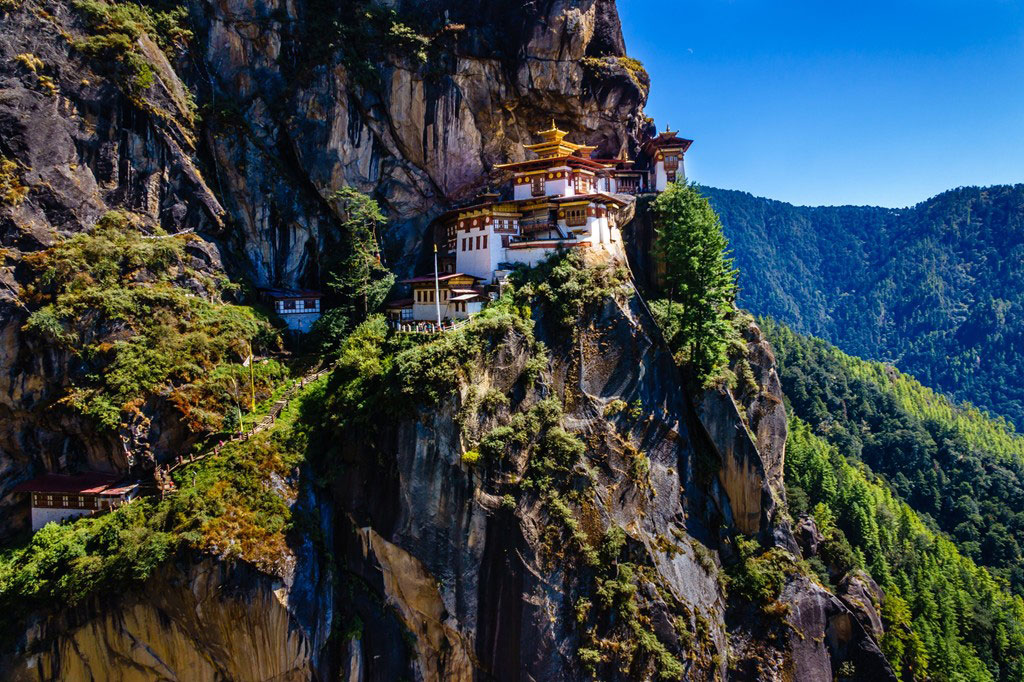
Paro Taktsang is also known as “Tiger’s Nest”, built on a cliff in 1692. According to legend, “The Second Buddha” – Guru Rinpoche has been riding tiger to get here and meditating for three years. Later, he was honored by the Bhutanese as a god. Today, Paro Taktsang has a religious and cultural significance that is very important to this country.
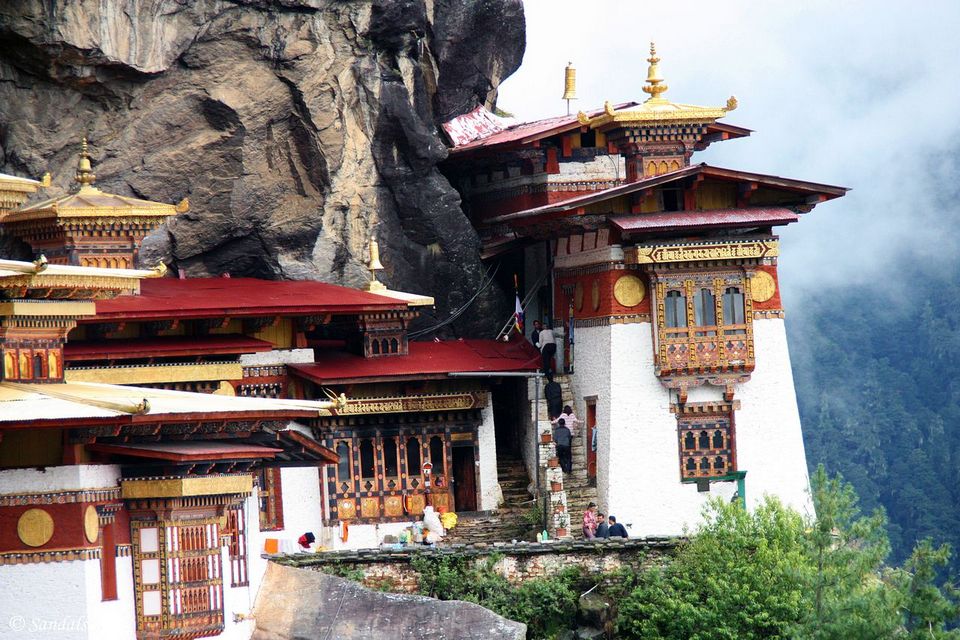
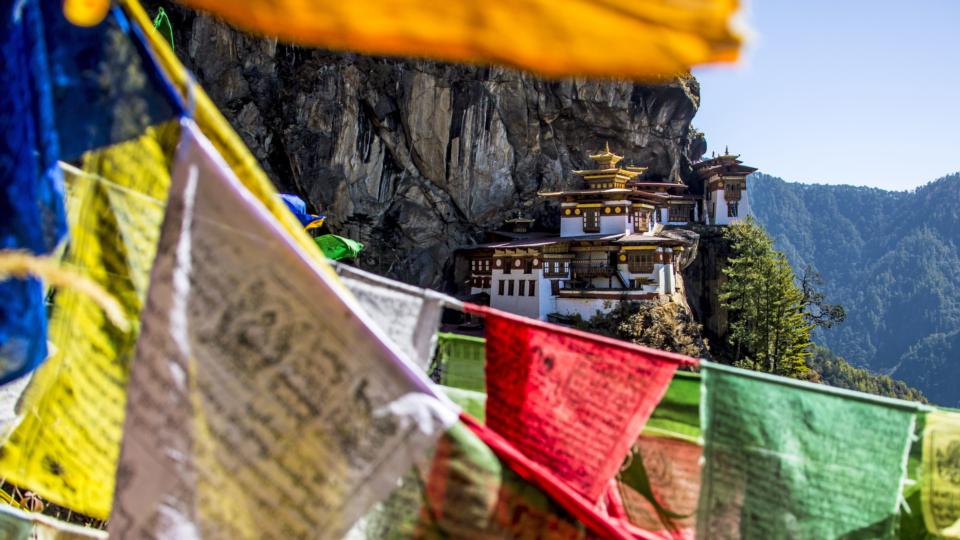
Kyichu Lhakhang
Kyichu Lhakhang is one of the most sacred tombs of Bhutan, including two temples. The first temple was built by the Tibetan king Songtsen Gampo in the 7th century and the second was built in 1968 by Ashi Kesang, the Queen of Bhutan.
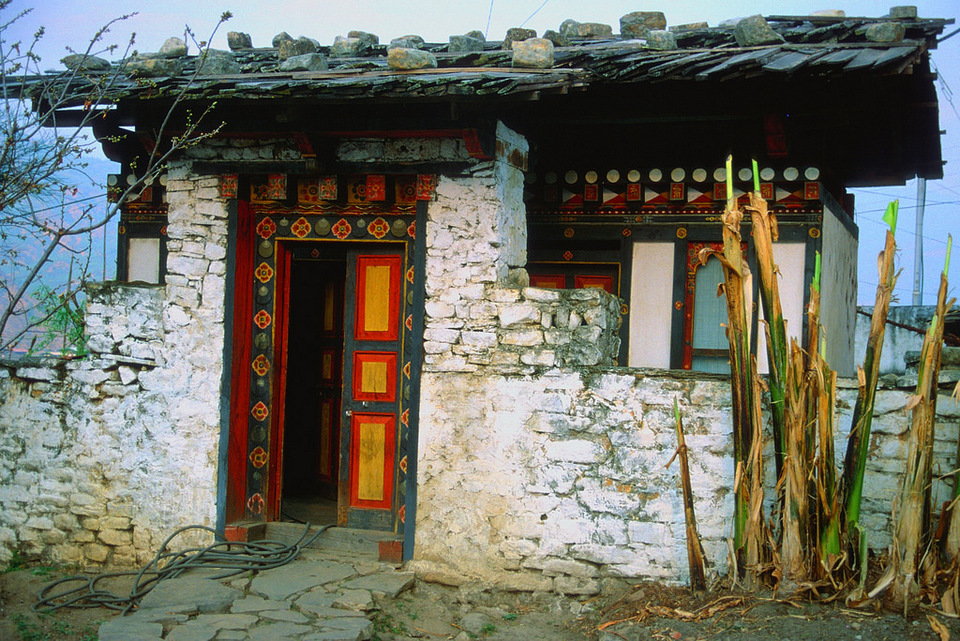
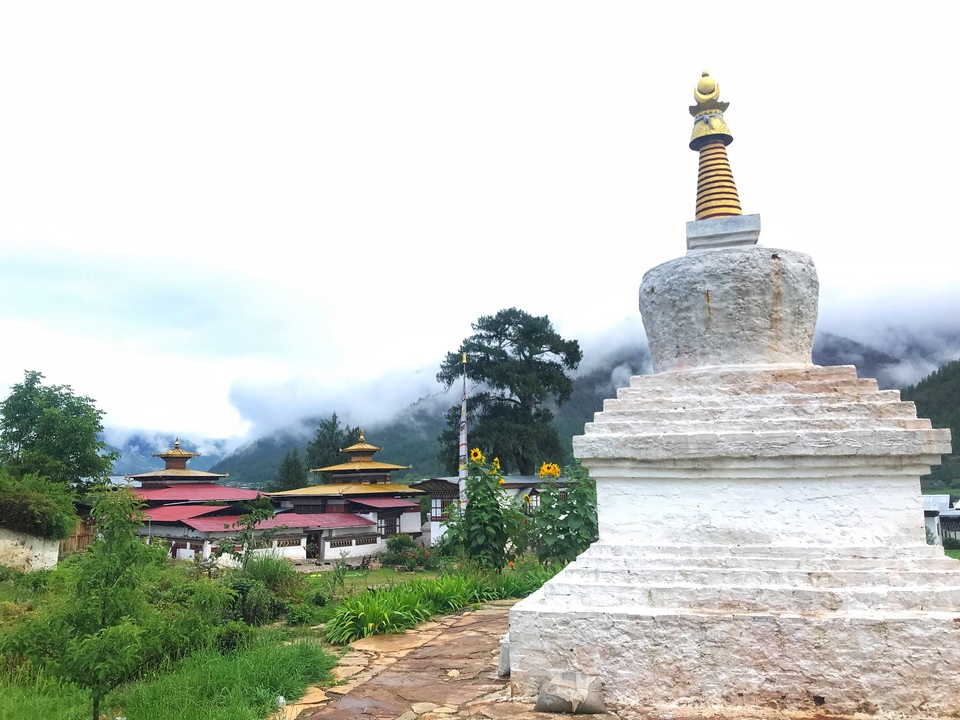
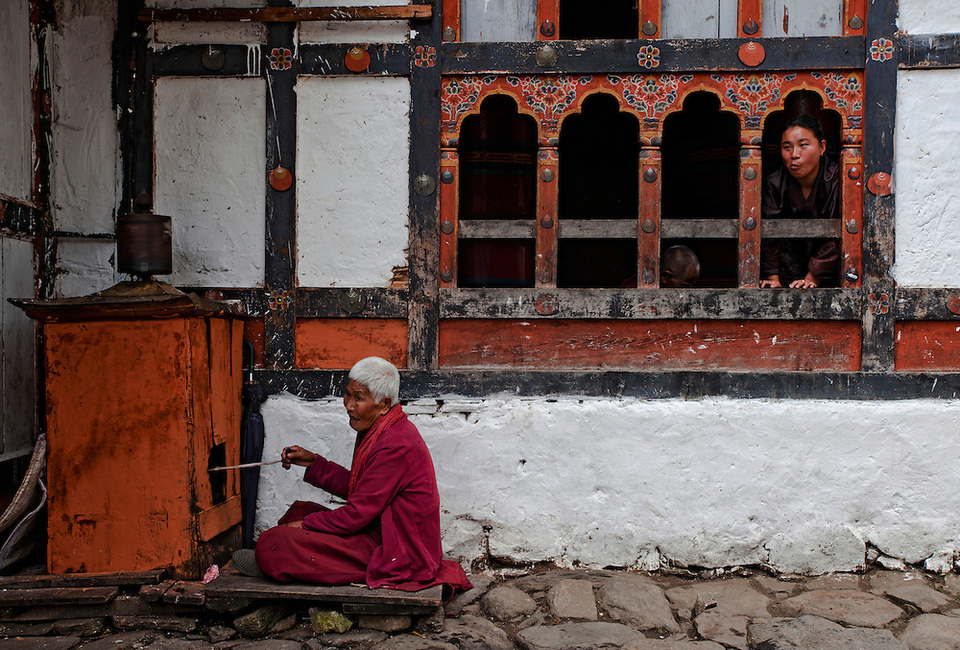
Rinpung Dzong
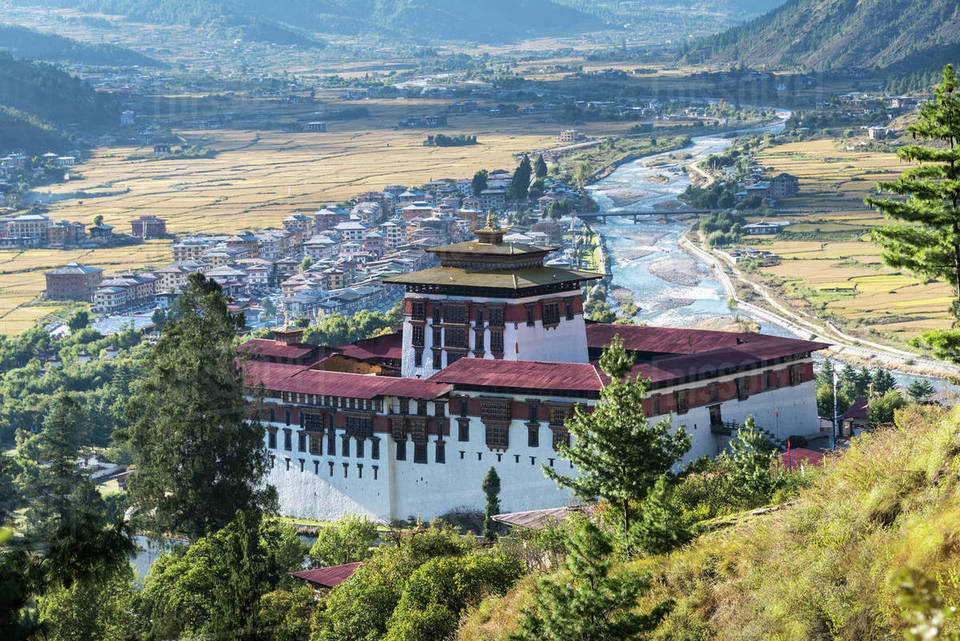
This name means that the fort is located on the treasure, the administrative center of Paro.
Punakha
This was once the capital and political center of Bhutan until 1955. Punakha located at an altitude of 1,200 meters above sea level, but its climate is a bit different Thimphu, quite warm in winter and hot in summer.
Punakha Dzong
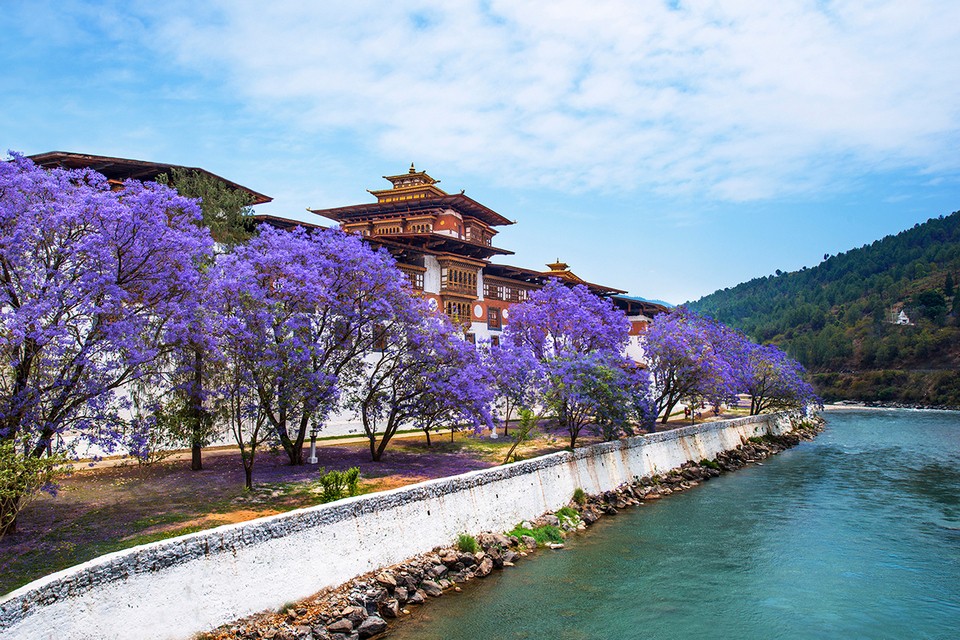
Punakha Dzong is where Guru Rinpoche receive with consideration the Buddha to Bhutan. It not only is the place where religious activities are held, it is also the major administrative center of the country. In addition to Punakha, Bhutan also has many other Dzong (fortresses) such as Changangkha Lhakhang, a temple-fortress in Thimphu. Every year, this site attracts many pilgrims to visit and pray.

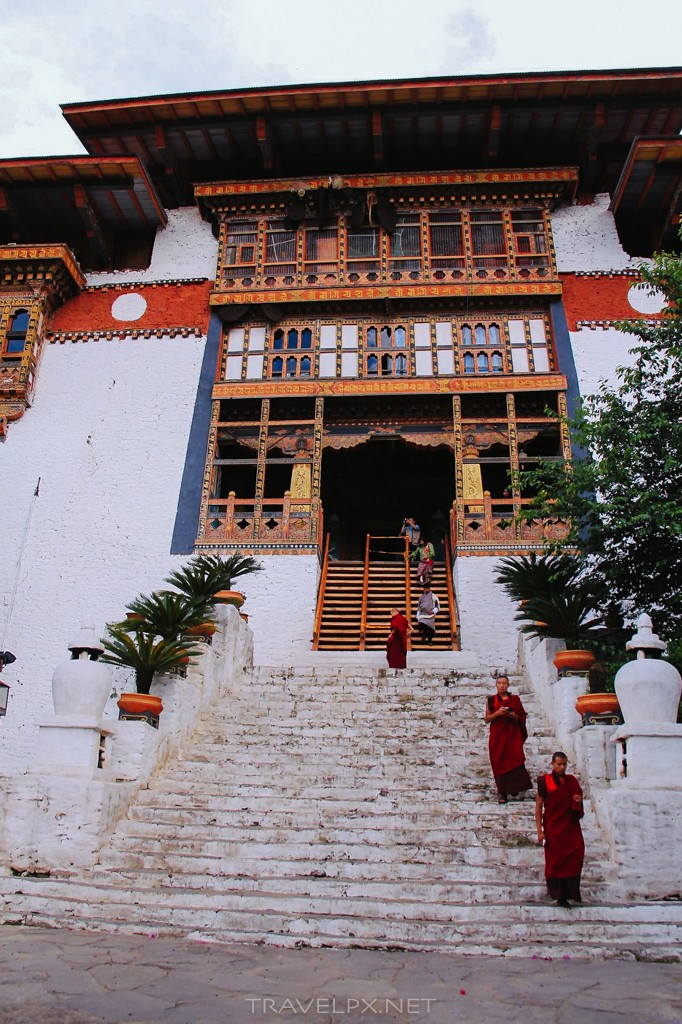
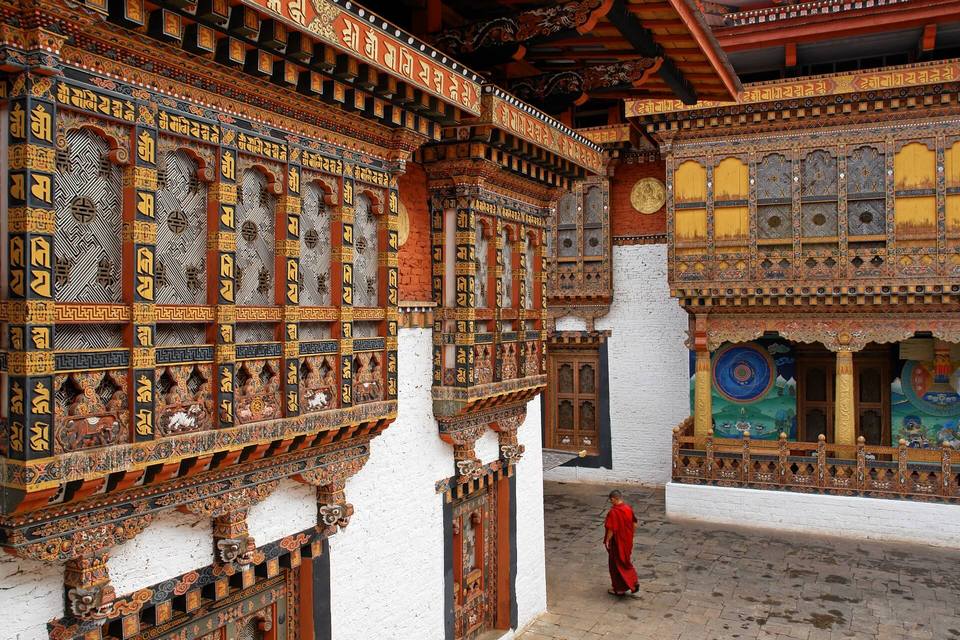
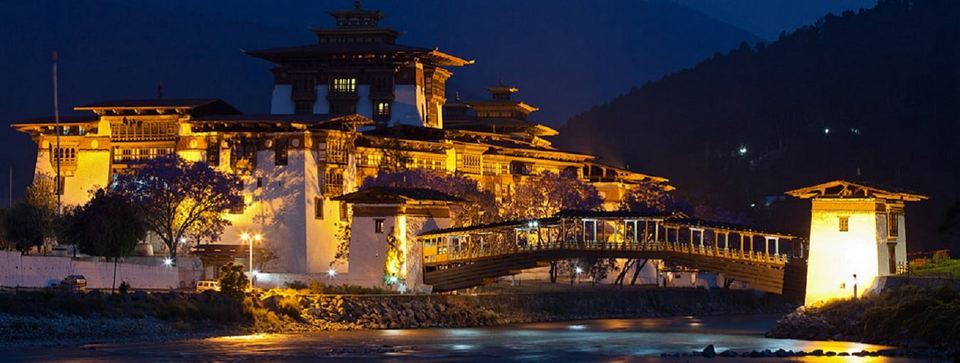
Khamsum Yulley Namgyal Chorten
A Chorten art symbol for the Tantric of Bhutan.
Dochula Pass
Dochula is home to 108 stupas, all year round covered in fog. If you want to see the scenery, from October to February next year is the most ideal time, from Dochula visitors will be watching the majestic scenery of the Himalayas.
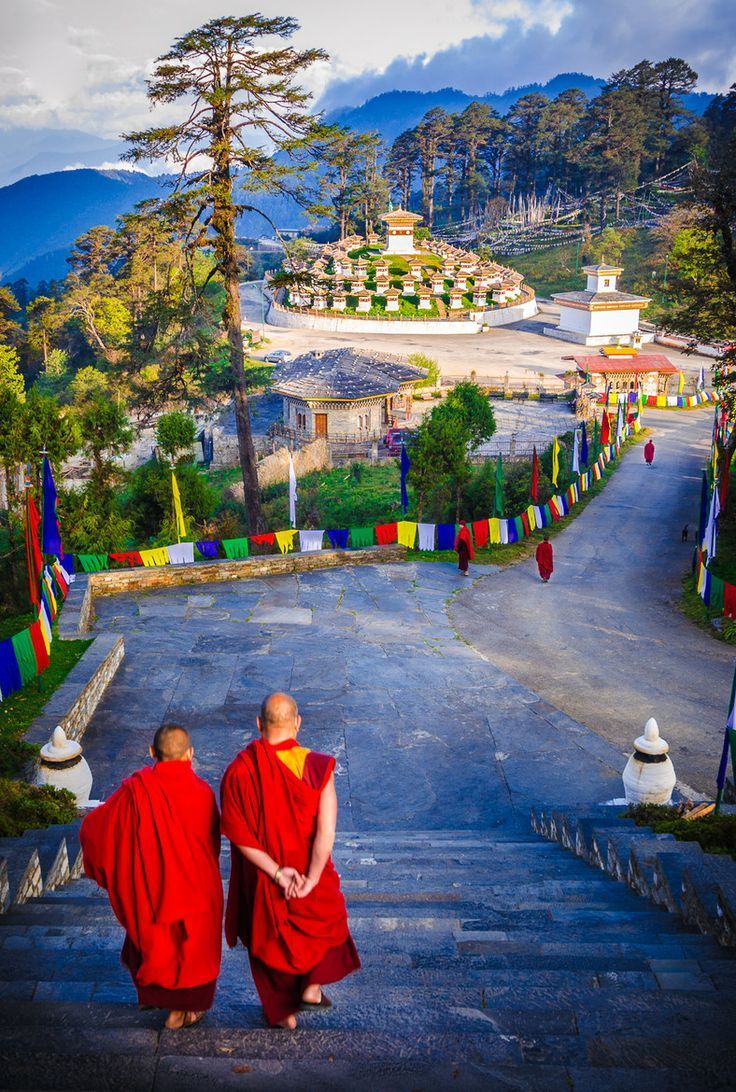

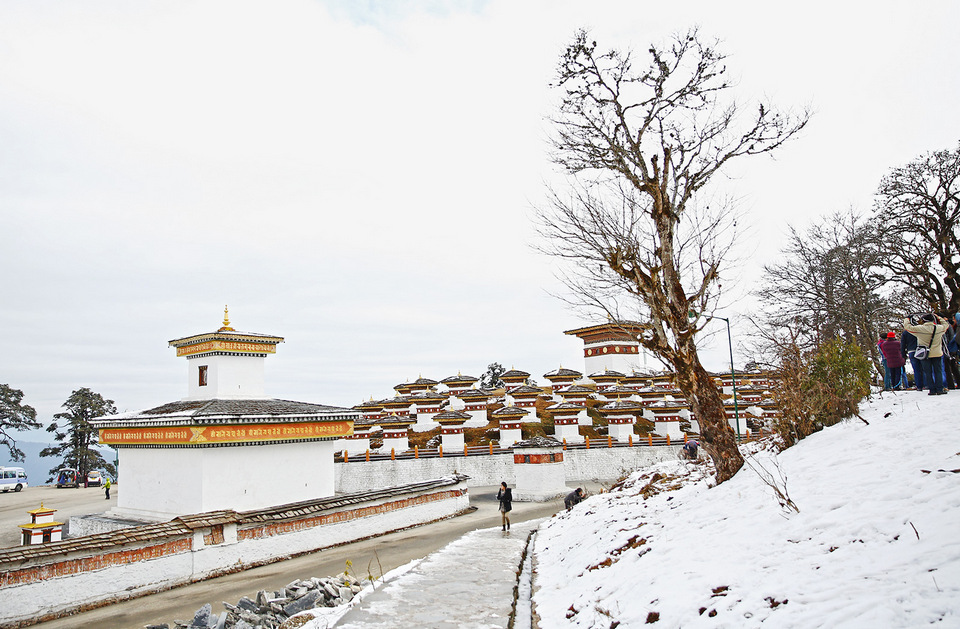
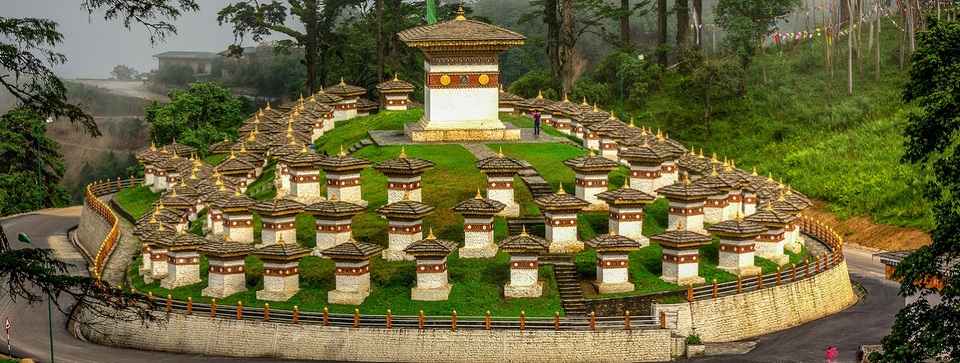
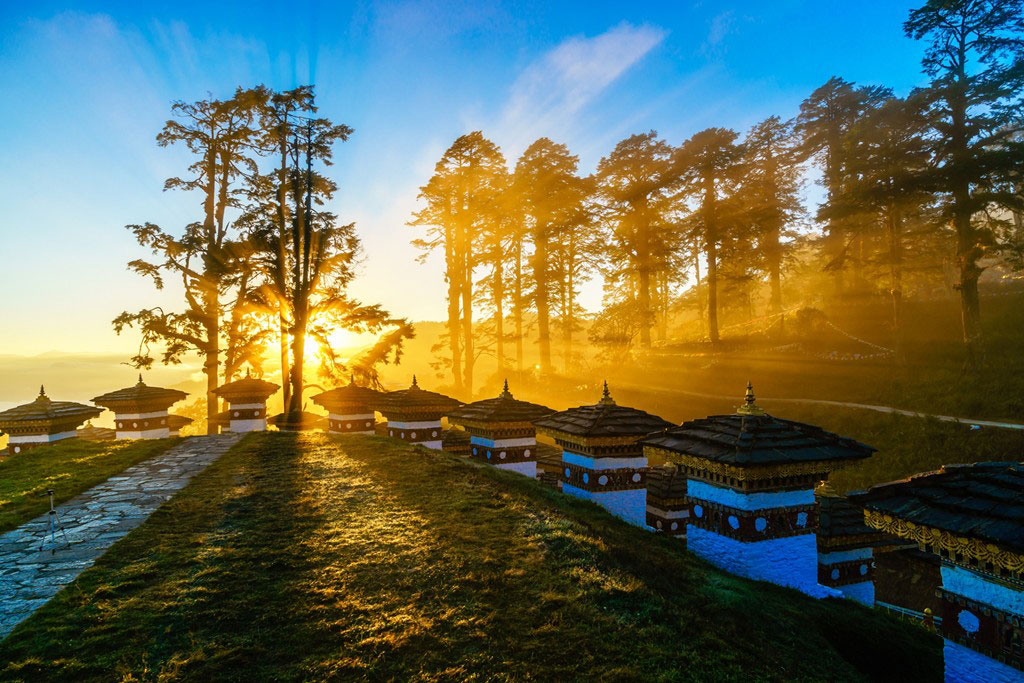
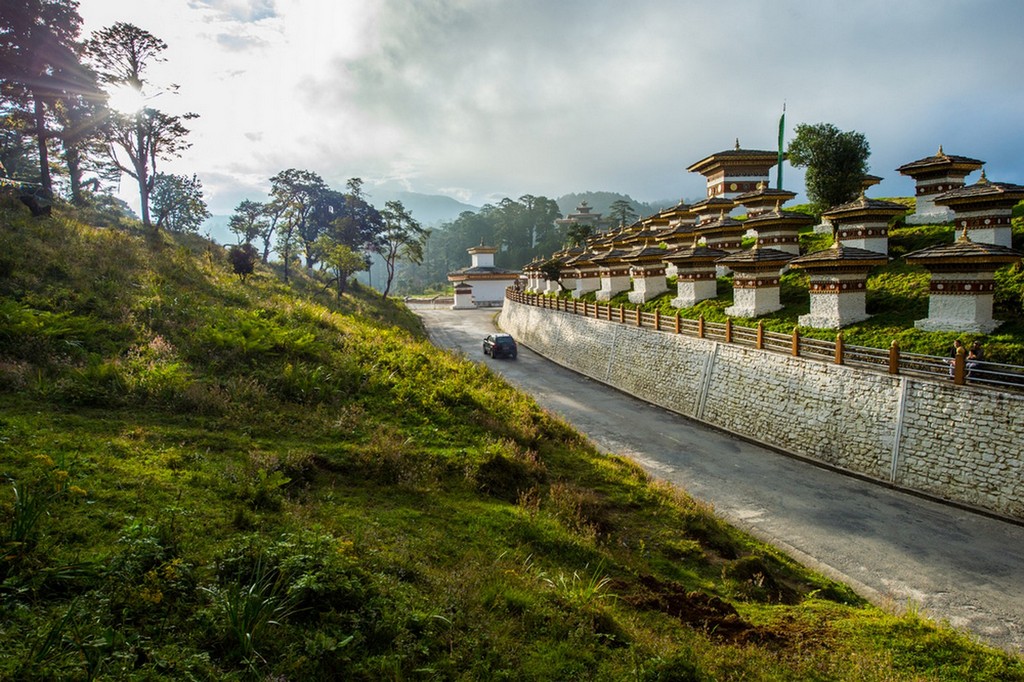
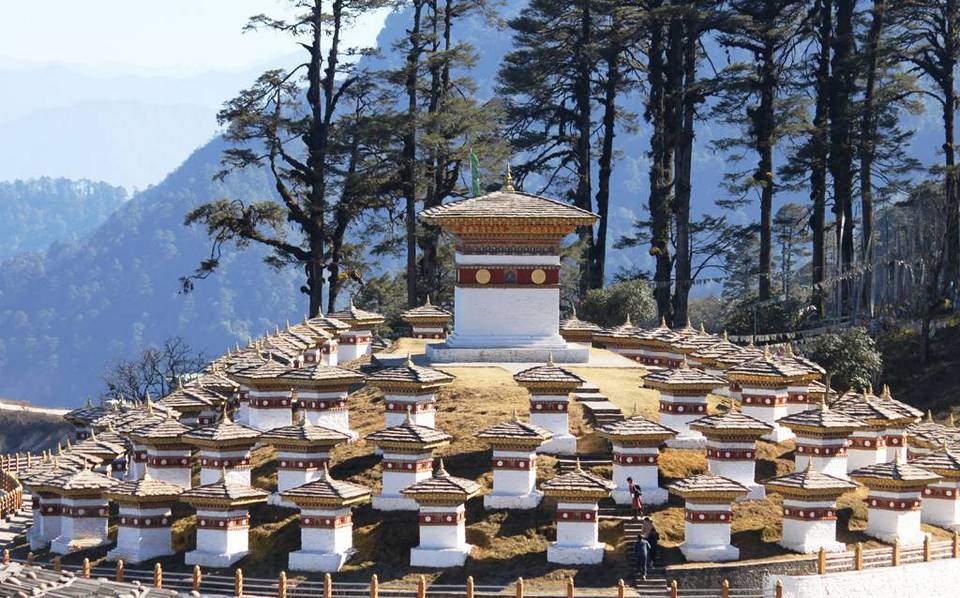
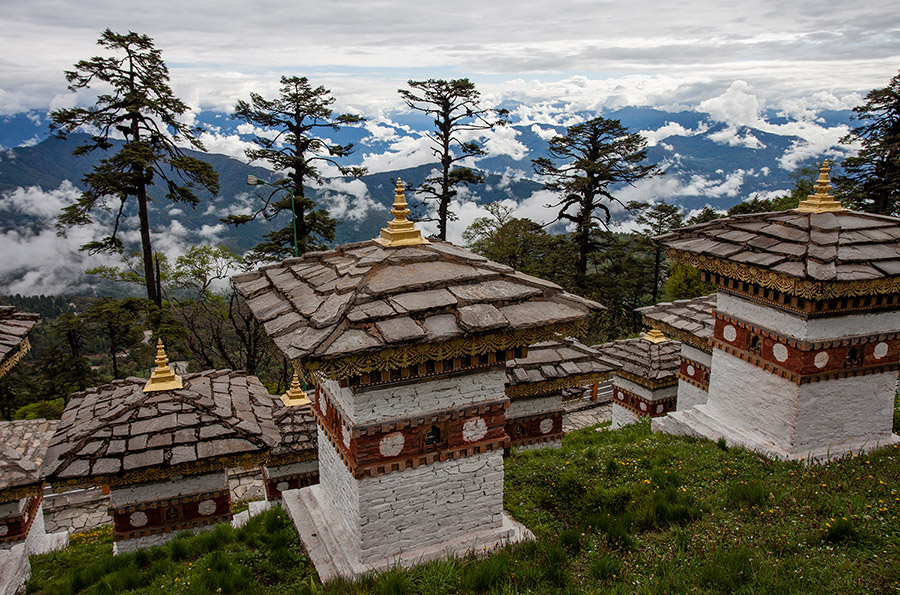
Mount Jhomolhari
Anyone who likes to venture out should know that Bhutan has some of the world’s highest mountains such as Jhomolhari and Jitchu Drake. Pay close attention to the mountain you want to conquer because some of the peaks are considered as sacred places by the gods and the government has forbidden climbers to come there.
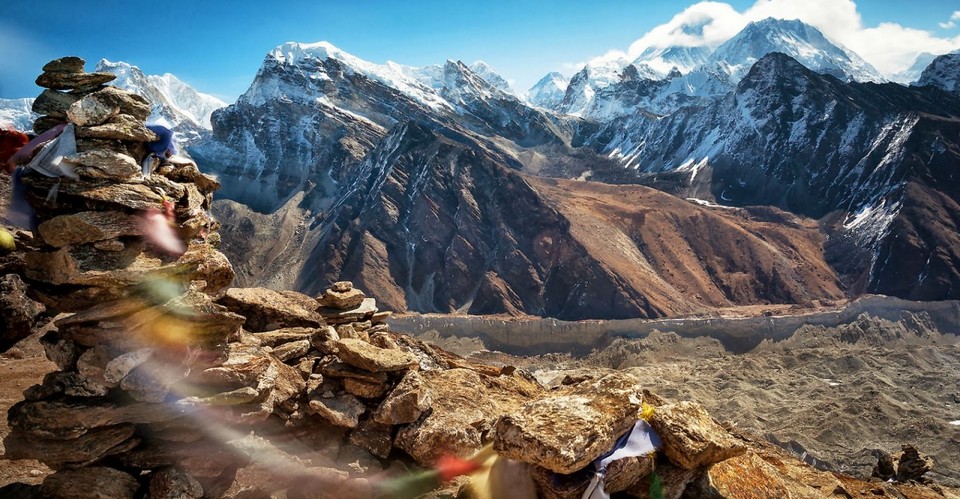
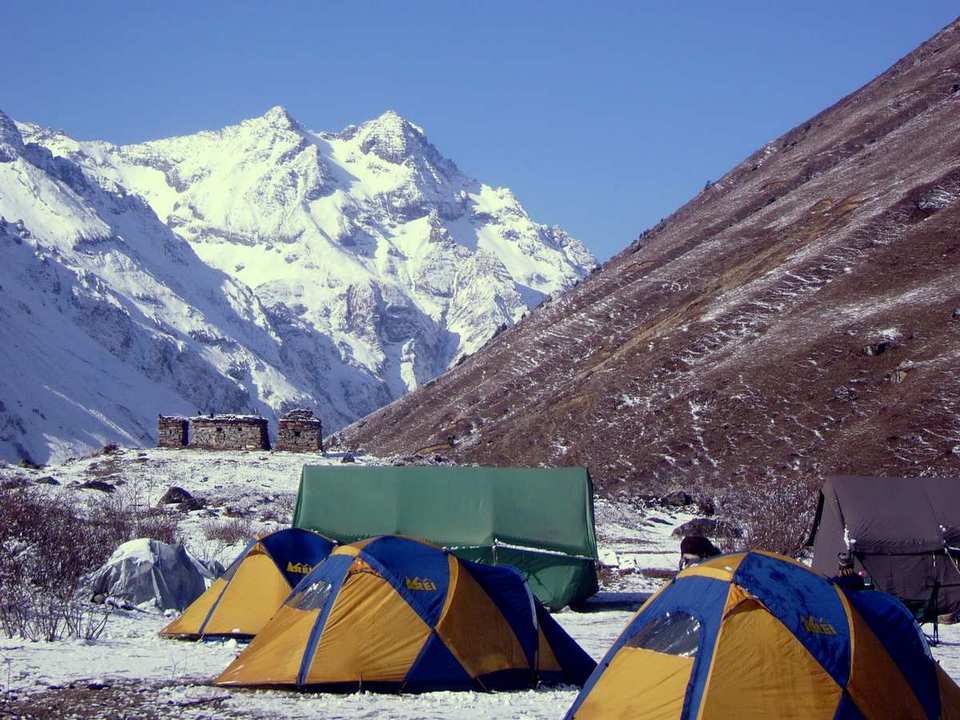
Bhutan travel blog: Festival in Bhutan
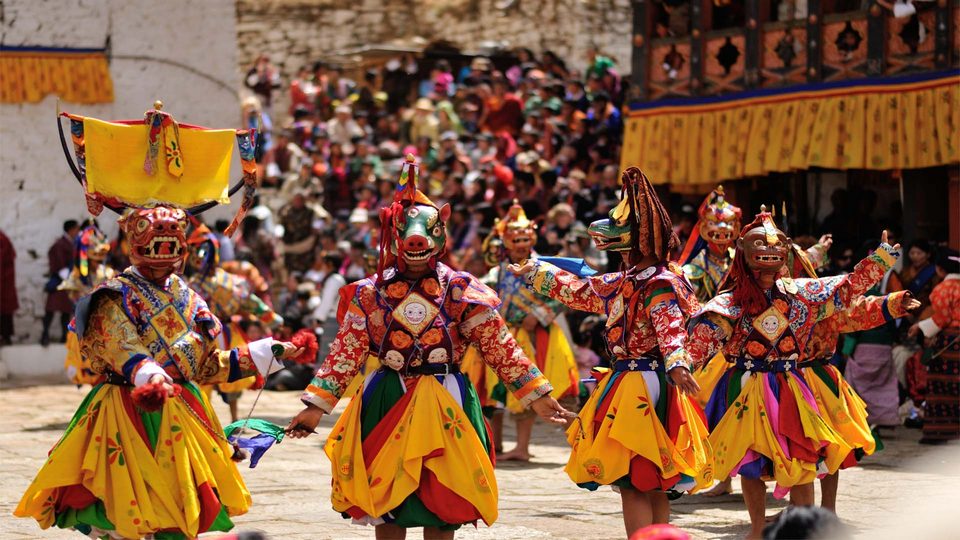
Bhutan is famous for its festivals, most notably is the Tsechu festival with thousands of people gathering to watching masked dances in various colors and forms bearing the bold of religious theme. The festival is dedicated to the god Guru Padmasambhava, the Indian saint who made important contributions to the birth of Tantric Buddhism in the Himalayas. The most popular festivals for tourists is the festivities held in Paro in the spring and in Thimphu and Bumthang in the fall.
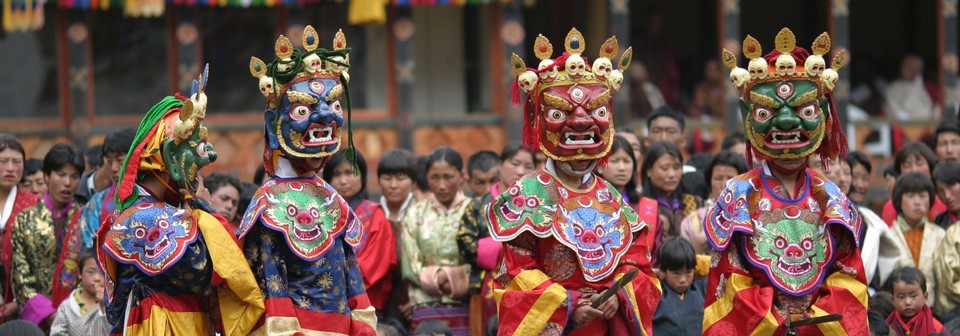
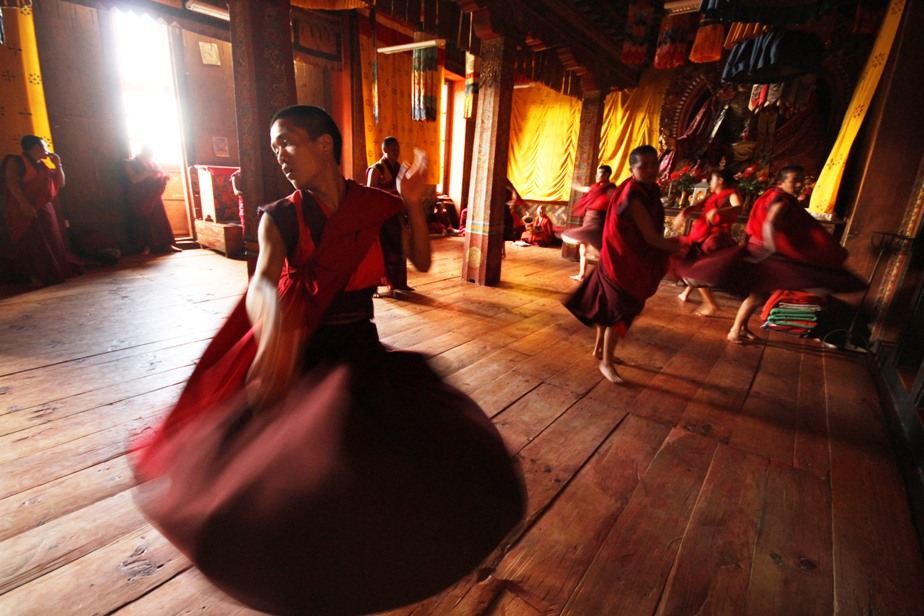
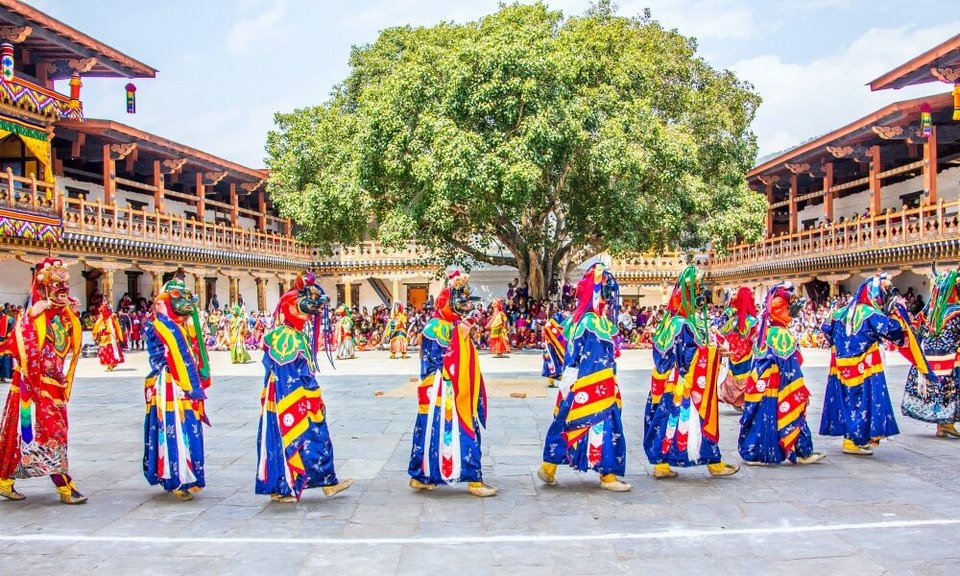
Bhutan travel blog: What to eat in Bhutan?
Normally, we think travel is always accompanied by food. But perhaps Bhutan is an exception. Almost the Bhutanese are vegetarians and their main dishes are made from rice. Rice and corn are the main foods. Bhutanese cuisine is very monotonous, light and unattractive. In the capital of Thimphu, which has only a few Thai and Korean restaurants. No other restaurants. The dishes are mainly steamed vegetables and sometime has fried chicken or a long time there is beef. If you are not familiar with Bhutanese food, you should bring some food from your country to Bhutan.
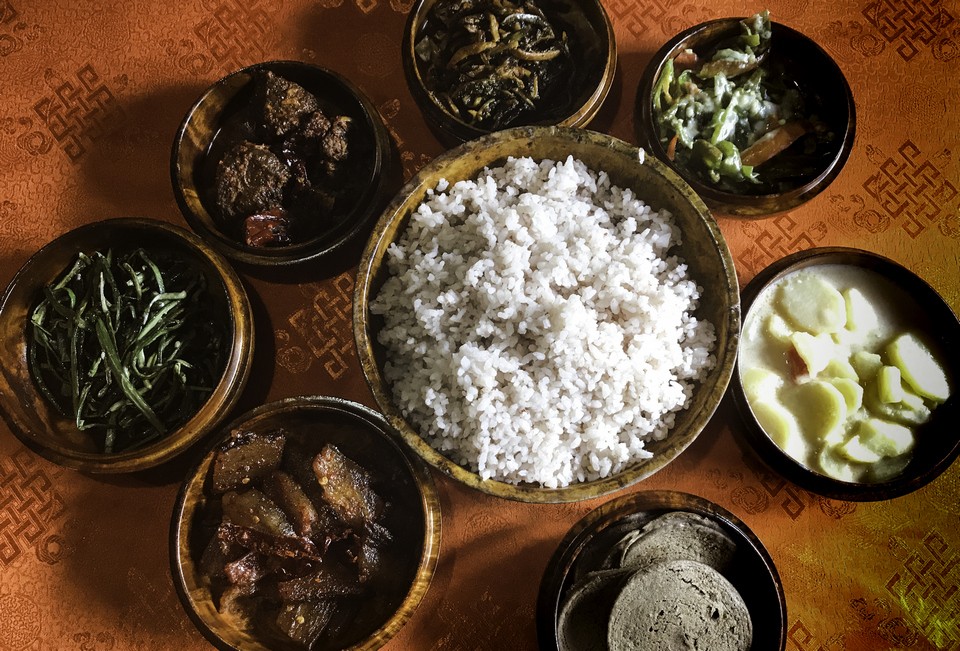
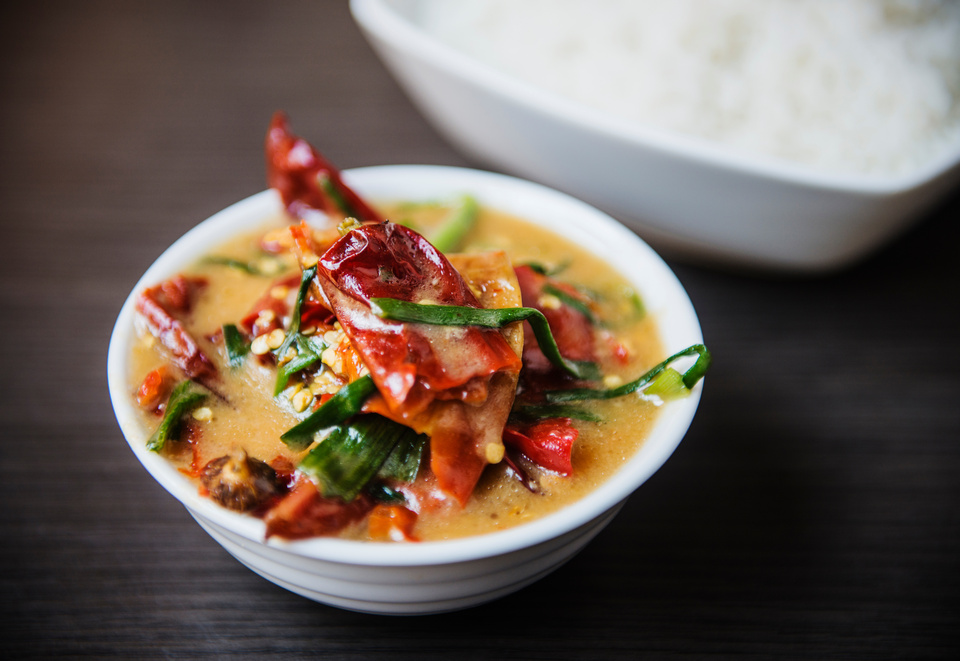
Ema Datshi
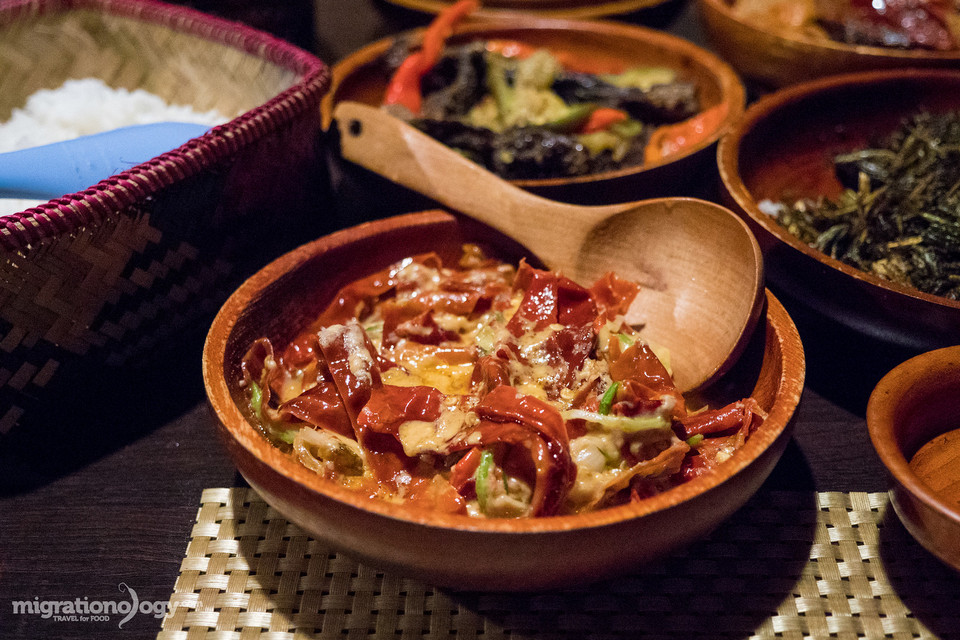
This is the most famous and popular dish in Bhutan. Ema means chili and datshi is the cheese in Dzongkha – the main language in Bhutan. You will not only eat ema datshi everyday, but also you will see it in every meal when in Bhutan. Chilli – either fresh green chillies or red chillies, chopped and cooked with cheese and plenty of butter. Although the main ingredient consists of chili and cheese, it is difficult to find two identical ema datshi dishes: each one has its own taste and flavor, some will watery, others will be viscous because of lots of cheese.
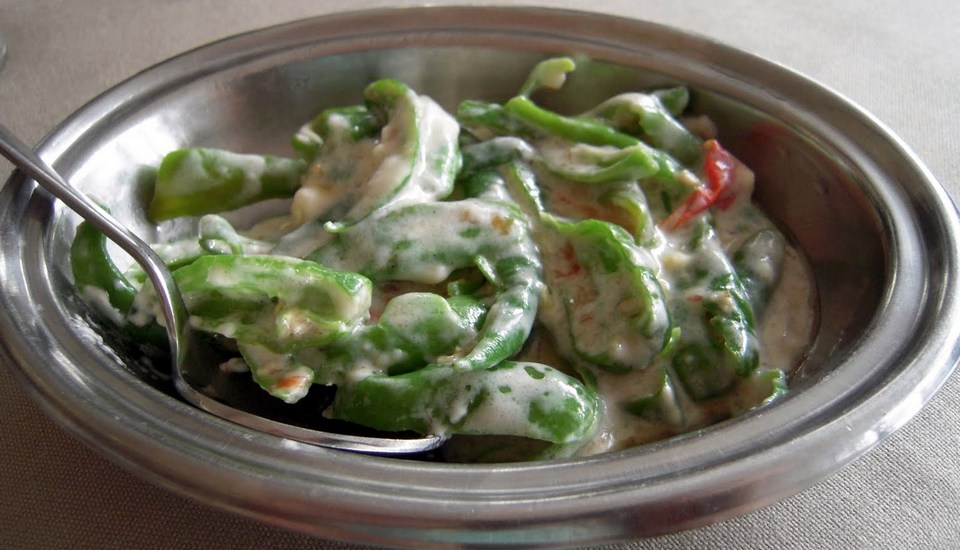
Shamu Datshi
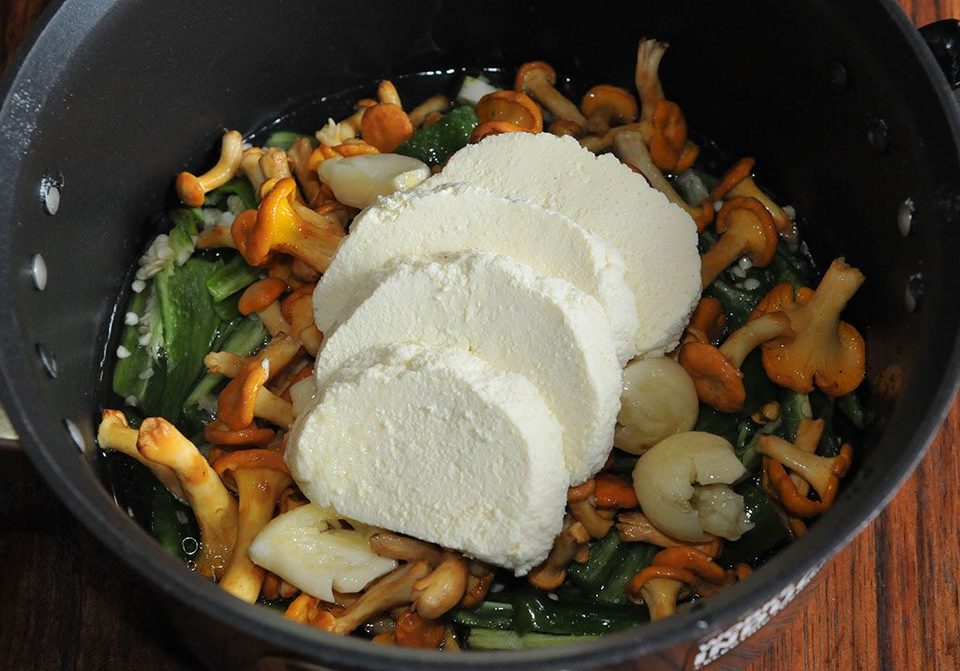
The dish of cheese cooked with vegetables is shamu datshi, including mushrooms and cheese. Like other Bhutanese datshi, you eat shamu datshi with rice. You have probably noticed, there is no way to come to Bhutan without eating the cheese with plenty of cheese, so much cheese! Datshi is probably one of the first Bhutanese you learned.
Momo
Momo is a kind of dumplings, very popular in India, Nepal, and Bhutan – as well as throughout the Himalayas region. They are very similar to other kinds of dumplings in the world, which probably originated in China. Momo is easily found in all restaurants and street food stalls in Bhutan. You can eat hot momo with grilled meats, cheese, vegetables inside, or eat with lots of ezay – a kind of Bhutanese chili sauce. Also, momo can be crispy deep fried after steaming. This is a popular snack in Bhutan, and certainly you will always have momo to enjoy when stay in Bhutan.
Ezay
It is impossible not to mention ezay – the word for any type of chili sauce in Bhutan. Here you can think, chili sauce is not really a food … But in Bhutan, ezay is mandatory to eat with all food, so it can be considered as a separate dish itself. It’s more like a salad than chili sauce. Each Bhutanese has its own recipe for ezay. It may be includes dried chili, Sichuan pepper, tomatoes and a little bit of cheese.
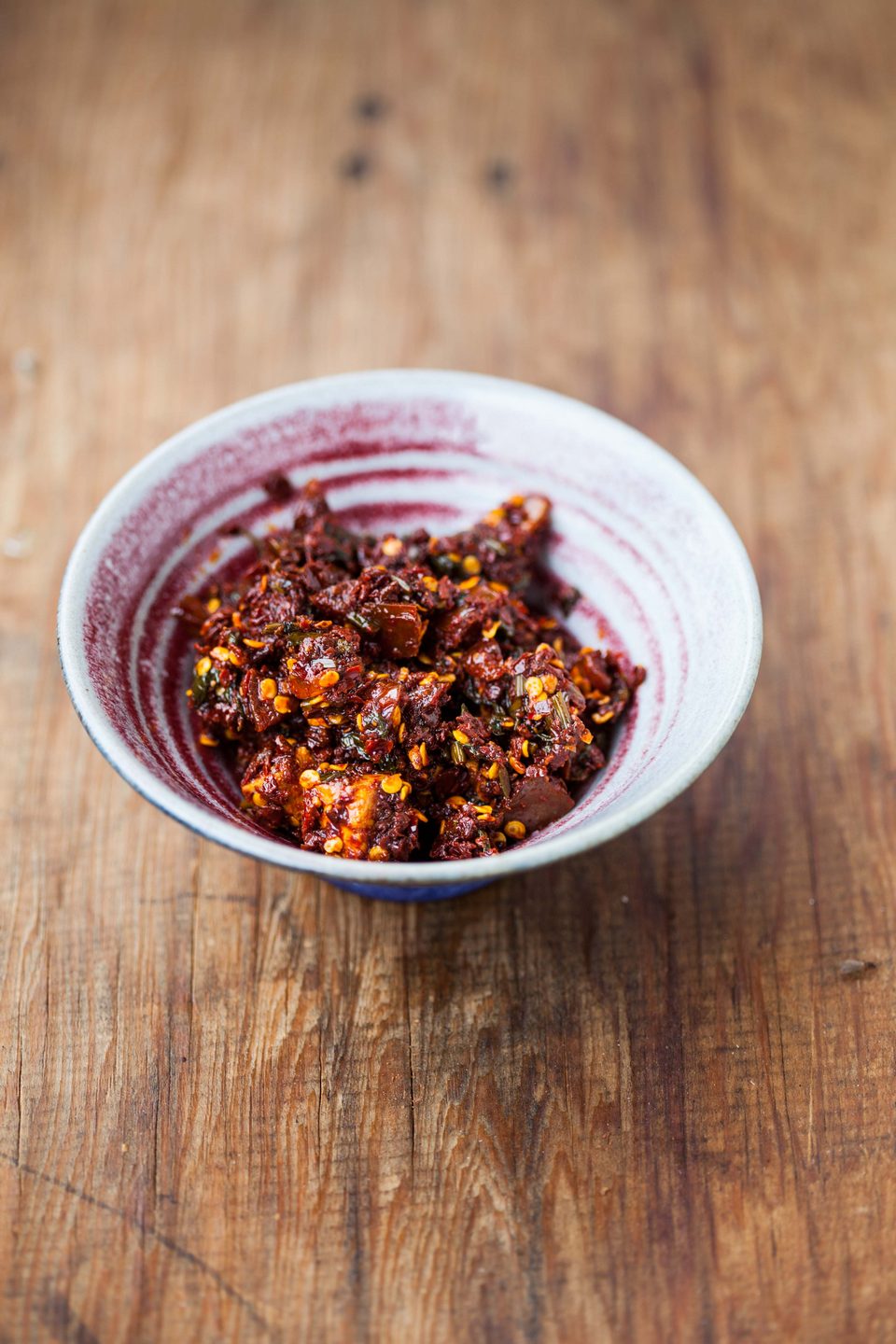
Red rice
Whether you dine at luxury resorts or at village festivals, you will still see red rice. Bhutanese eat red rice like Vietnamese eat white rice or Americans eat bread. Red rice has high nutritional value, because the fields in the Paro valley – which produces red rice, are very fertile with high levels of mineral water. Only one small meal made of Bhutanese red rice is also provided 80% of Manganese and 20% of Phosphorus required for the body. The red color of non-cooked rice is the natural anti-cancer agent. After cooking, the color of the rice turned to light red or pink, rice also becomes soft and flexible.
Suja
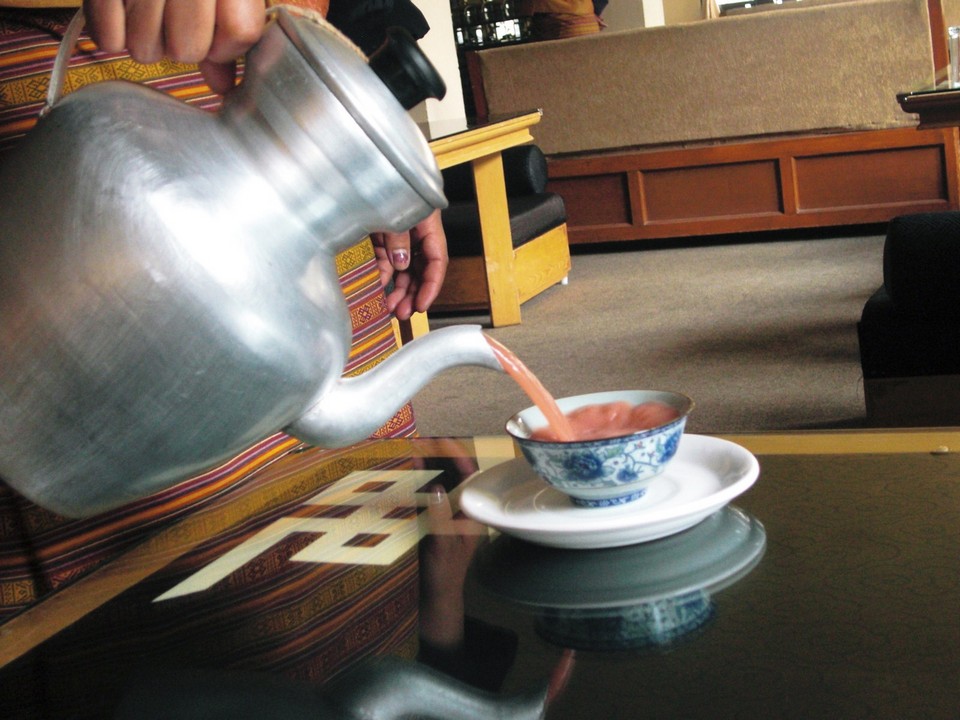
Made from mountain tea or natural herbs, yak butter and salt. This is the traditional drink of the Himalayan mountains, and is used to warm the body very well in the winter.
Bhutan blog: What to buy in Bhutan?
Butter and Cheese
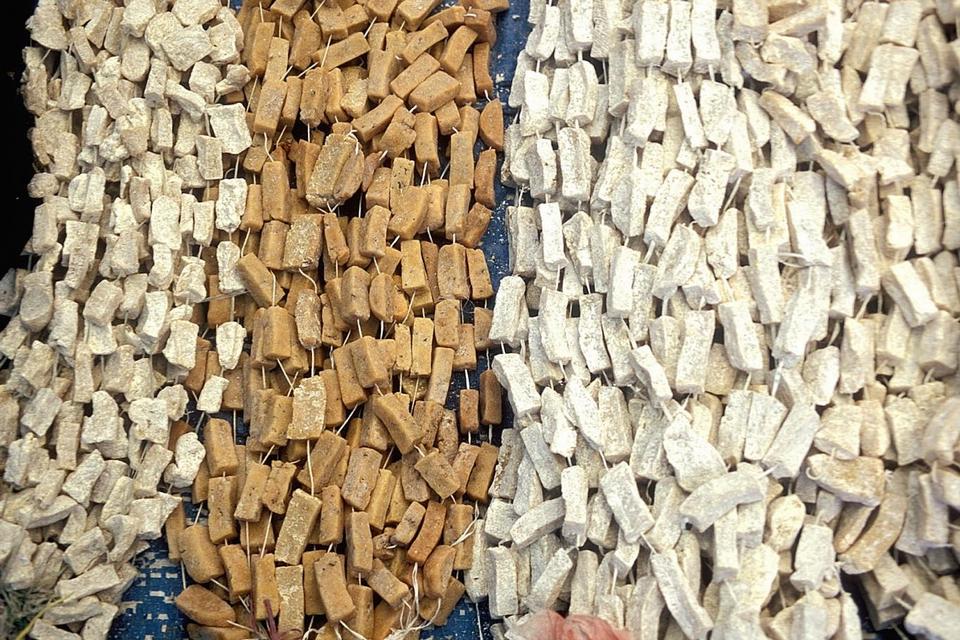
Butter is made entirely from cow’s milk. Bhutan is a Buddhist country so people restrict killing animals. Therefore, they raise cows mainly for milk and use in agriculture. Moreover, butter and cheese are important to the Bhutanese like rice for the Vietnamese. They use avocados instead of cooking oil and use cheese in their daily meals. Yak cow butter is priced at 600-1000 Nu/kg.
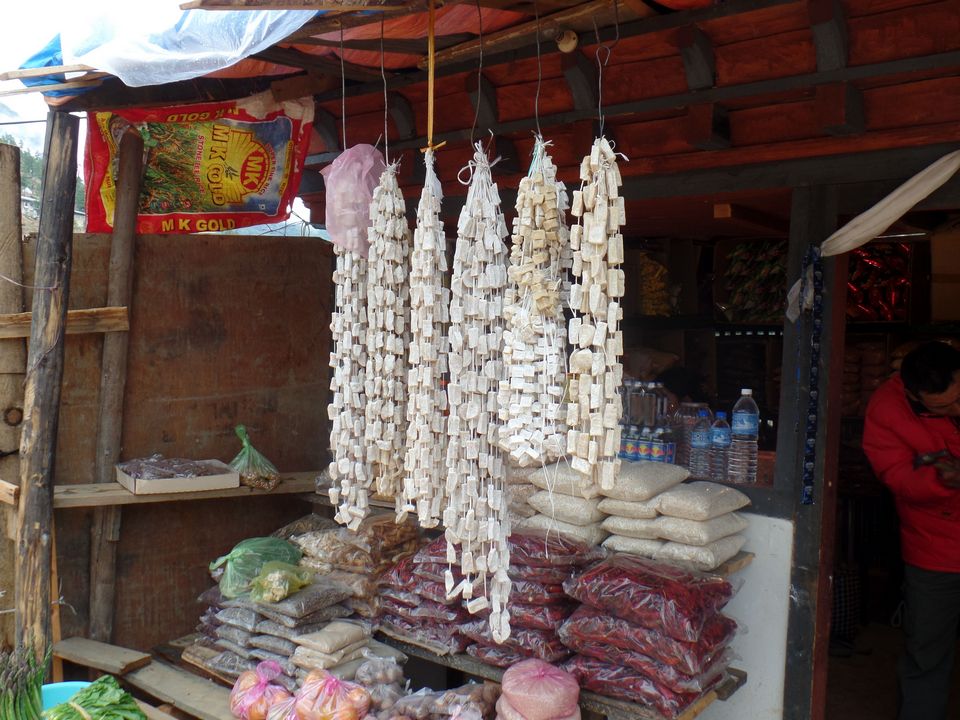
Honey
Bhutan honey is world famous because it is 100% natural honey. You can easily find the tourist places. The price is about 270-300 Nu/bottle of 275 gram.
However, you should ask a guide to take you to the local shops. The price will be better at the tourist shops.
If you meet the local market you should buy soil honey here. Because it is much better than forest honey. The price of soil honey is about 1000 Nu/bottle of 750 gram, 300 Nu/bottle of 200 gram.
Hand woven fabric
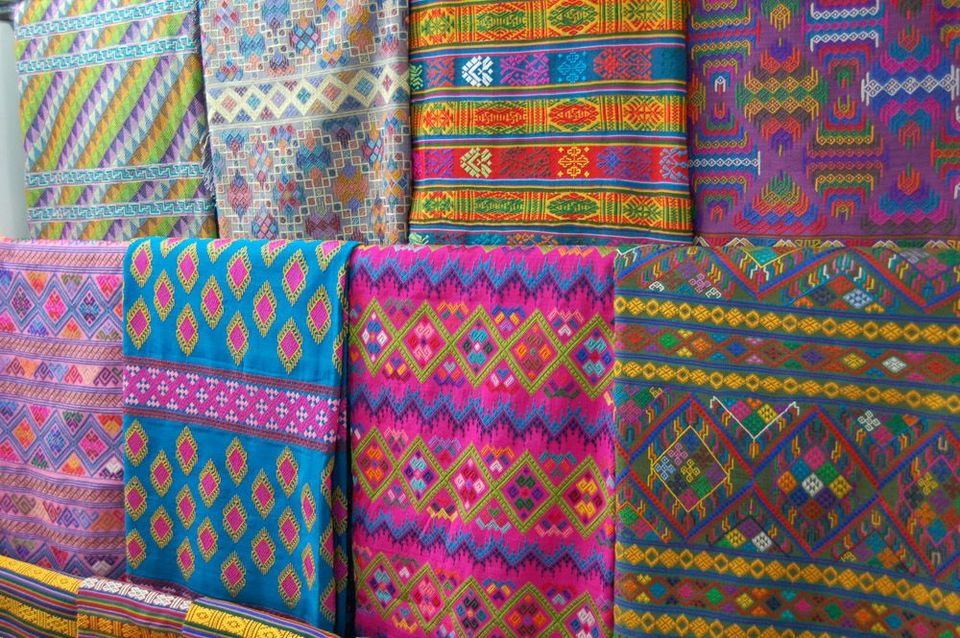
Textile weaving is an important part of the culture and life of Bhutanese people. Woven fabrics of Bhutanese craftsmen are highly appreciated in the world, they are woven from cotton, raw cotton and silk, also from wool … with elaborate motifs knit on fabric.
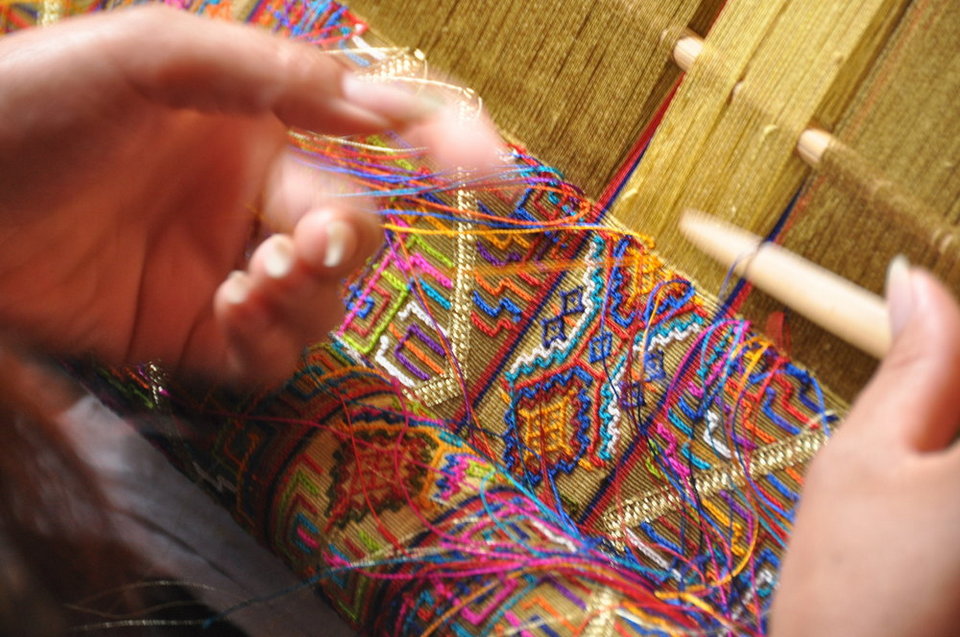
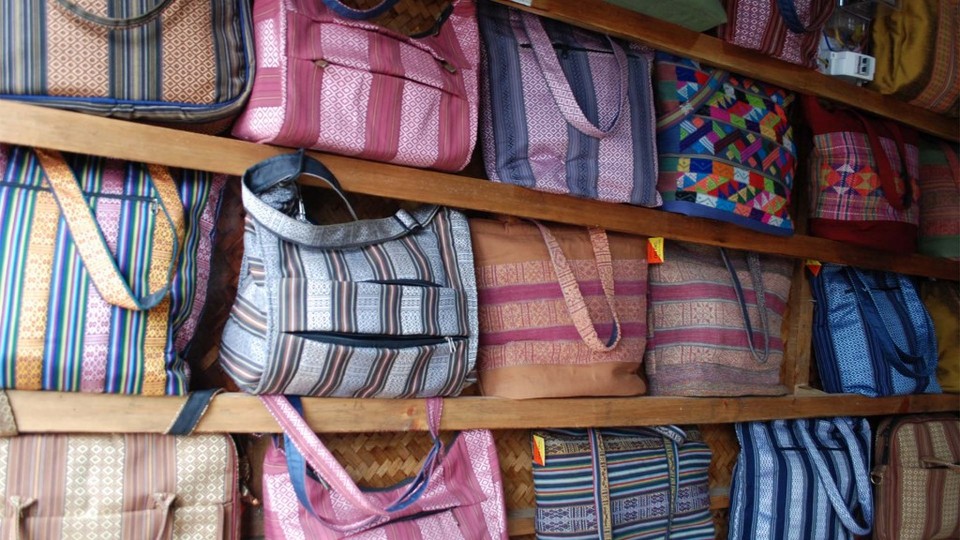
Bhutan travel blog: Some useful notes when traveling to Bhutan
- The amount that visitors pay of $200/day or $250/day (in peak tourist season) included costs of eating, traveling and accommodation and does not include personal expenses. Many visitors misunderstand that this is the amount of money they have to spend every day in Bhutan. This amount will be transferred to the travel agencies here. For example, if you travel to Bhutan for 4 days, the total cost will be $1000 excluding airfare and visa costs.
- When visiting the Royal Palace, tourists often will not be photographed, visitors should respect this.
- The natural environment here is very fresh and clean, visitors should be careful while visiting and throw garbage is taboo.
- Respect the indigenous beliefs and culture of Bhutanese people.
- Respect the king as well as the Royal family, Bhutanese people see the king as a living Buddha, wholeheartedly adored and admired.
- Stylish, courtesy when visiting religious buildings, temples or palaces.
- Smoking in Bhutan is strictly forbidden, and smoking can be arrested and sent to jail.
- Bhutanese people are very friendly and hospitable, you can get acquainted and chat with them.
- Do not catch fish, kill animals, cut trees, pick flowers … those behaviors can be disturbing people and make the authorities pay attention.
Read more:
- What to buy in Bhutan? — +19 must-buy Bhutan souvenirs & best things to buy in Bhutan
- Bhutan photography tour — 15+ beautiful moments revealed the beauty of the fairy land of Bhutan.
- 10 reasons why you should visit Bhutan this year.
- 17+ Bhutan photos revealed the beauty of the happiest country in the world.
- 6 reasons why Bhutan is the most livable country in the world.
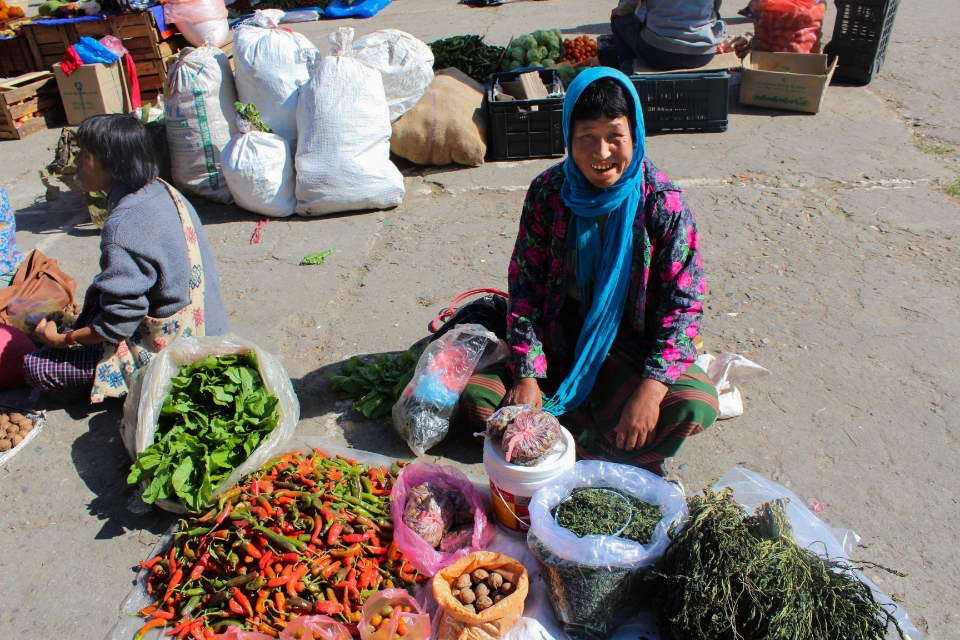
Some best day tours, trips, activities and transfer services, tickets in, from and to Bhutan you can refer to
- 5D4N Classic Bhutan Tour
- 9D8N Classic Bhutan Tour
- Thimphu Private Car Charter
- 6D5N Dagala Thousand Lake Trek
- 6D5N Druk Path Trek
- 14D13N Laya – Gasa Trek
- 7D6N Classic Bhutan Tour
- 8D7N Classic Bhutan Tour
- 6D5N Classic Bhutan Tour
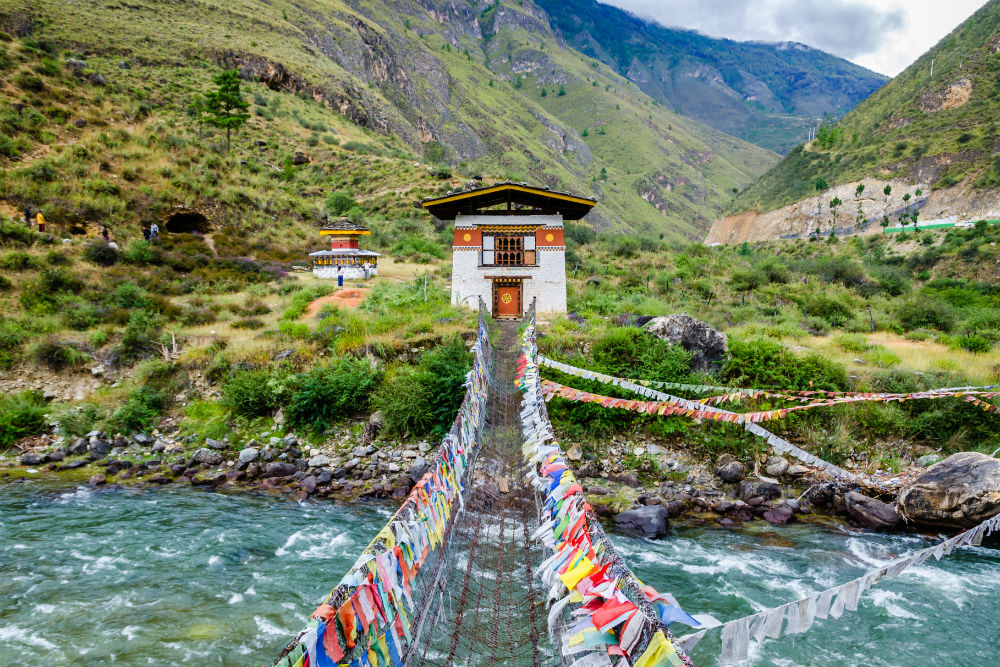
Read more: What to buy in Bhutan? — +19 must-buy Bhutan souvenirs & best things to buy in Bhutan and Bhutan guide here.

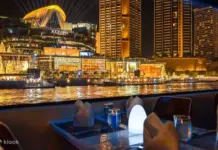
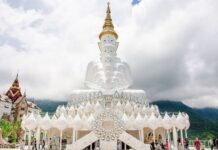
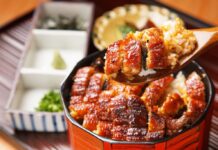
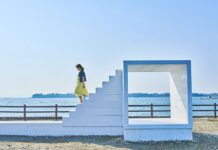
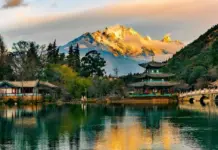
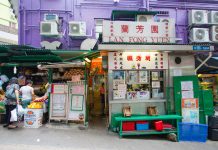
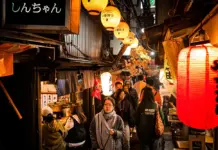
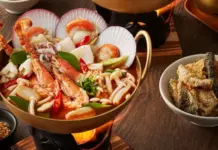
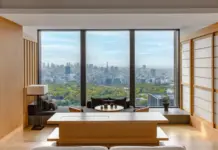
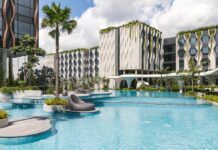
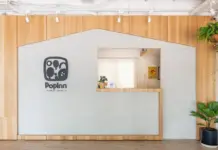
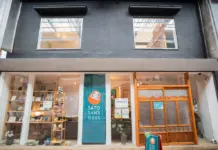


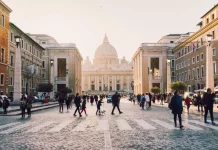
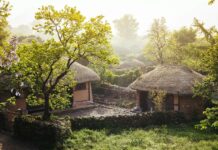
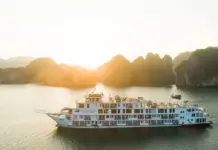

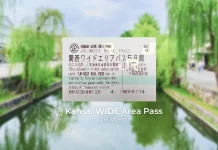

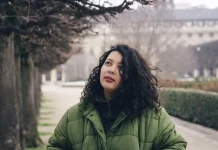
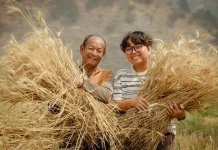
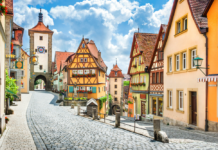



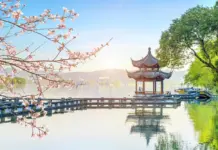

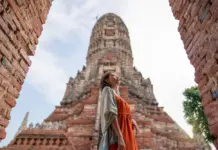
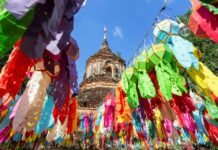
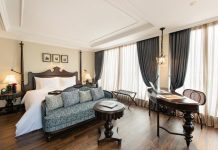
![10 best airports in Asia in 2016 [RANKED] kuala-lumpur-international-airport-best airports in asia in 2016 by skytrax ratings](https://livingnomads.com/wp-content/uploads/2016/08/29/kuala-lumpur-international-airport-best-airports-in-asia-in-2016-by-skytrax-ratings-218x150.jpg)
